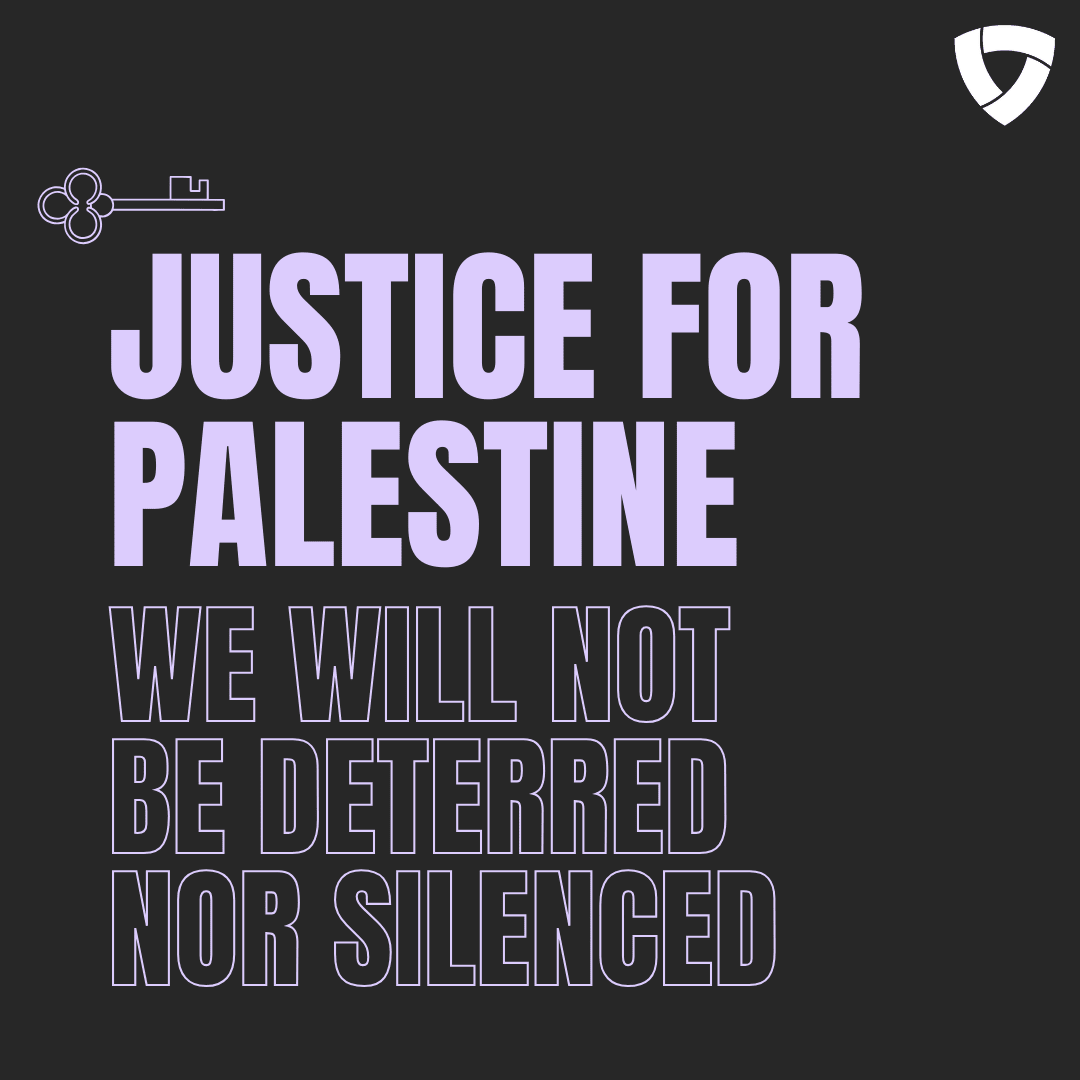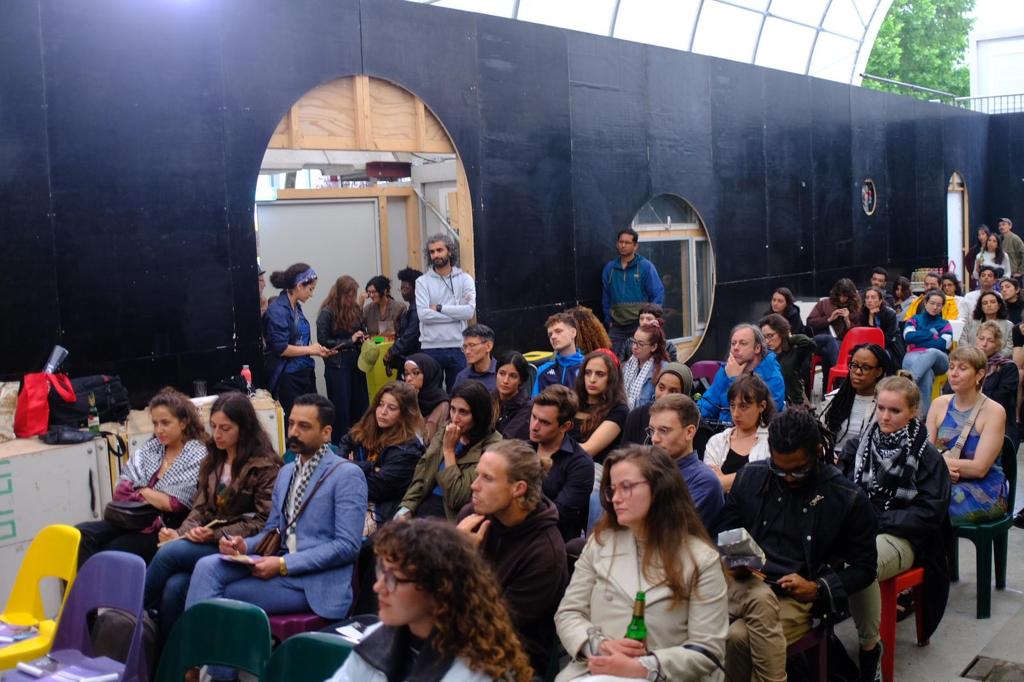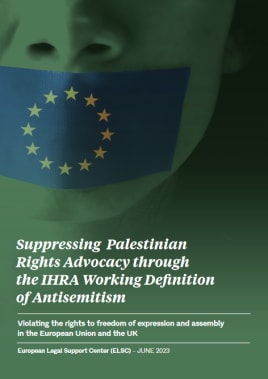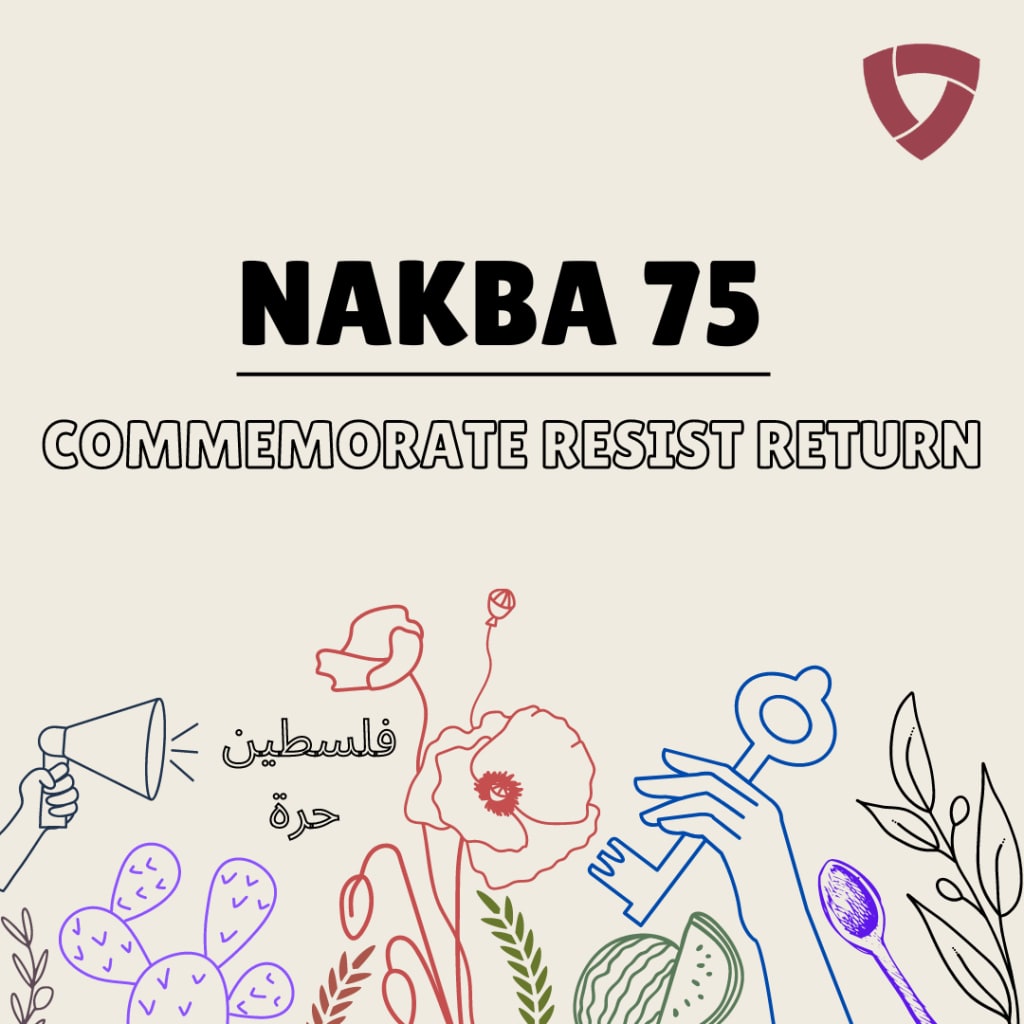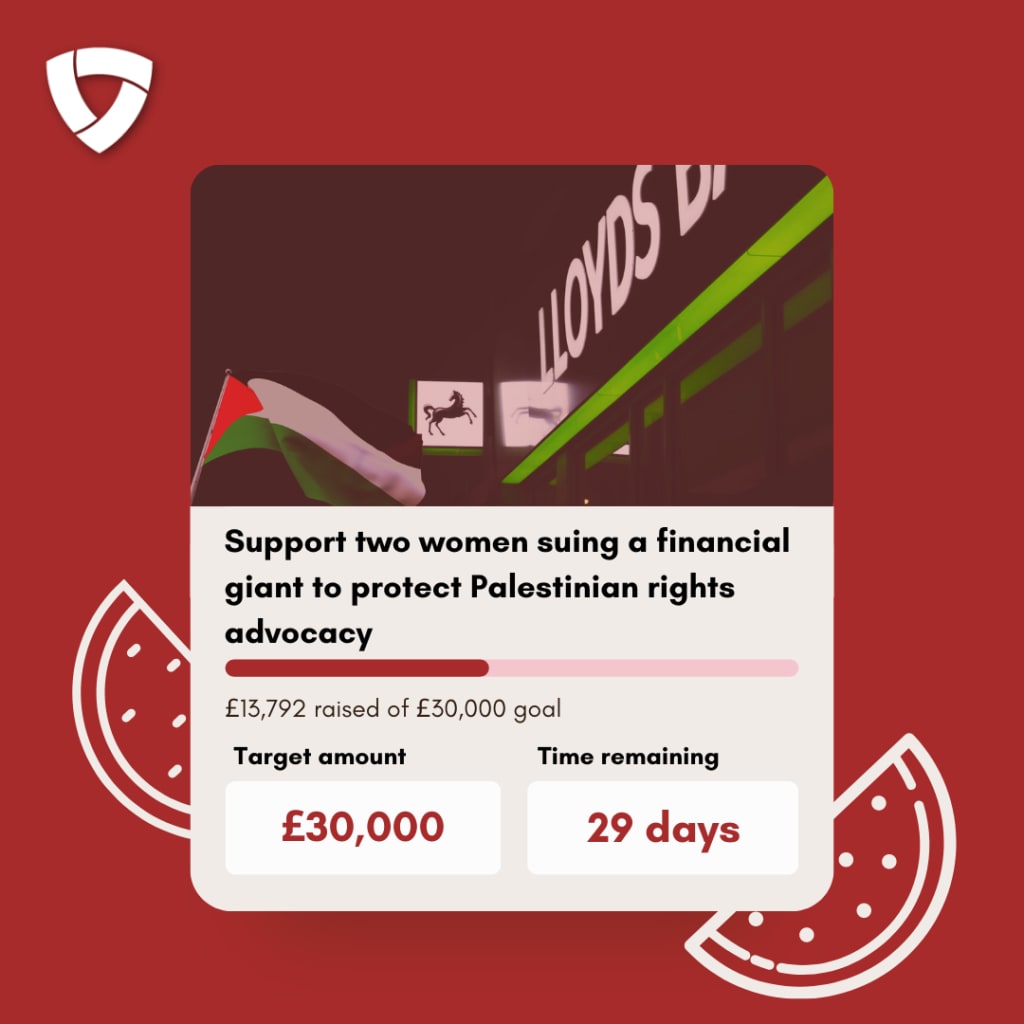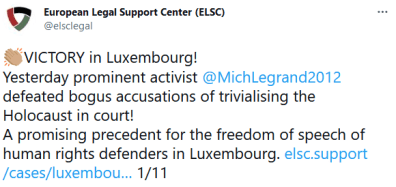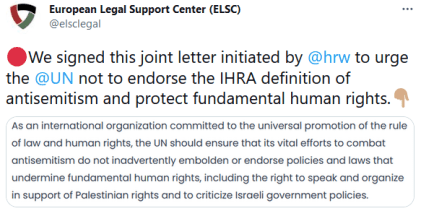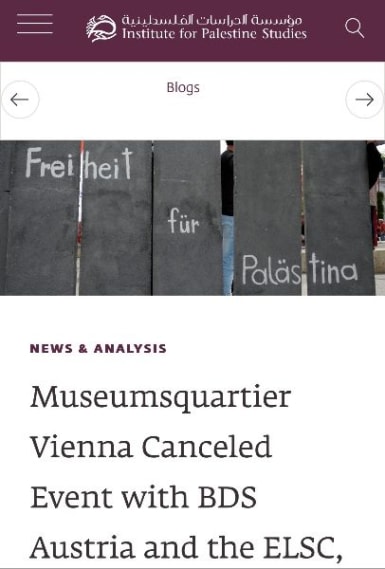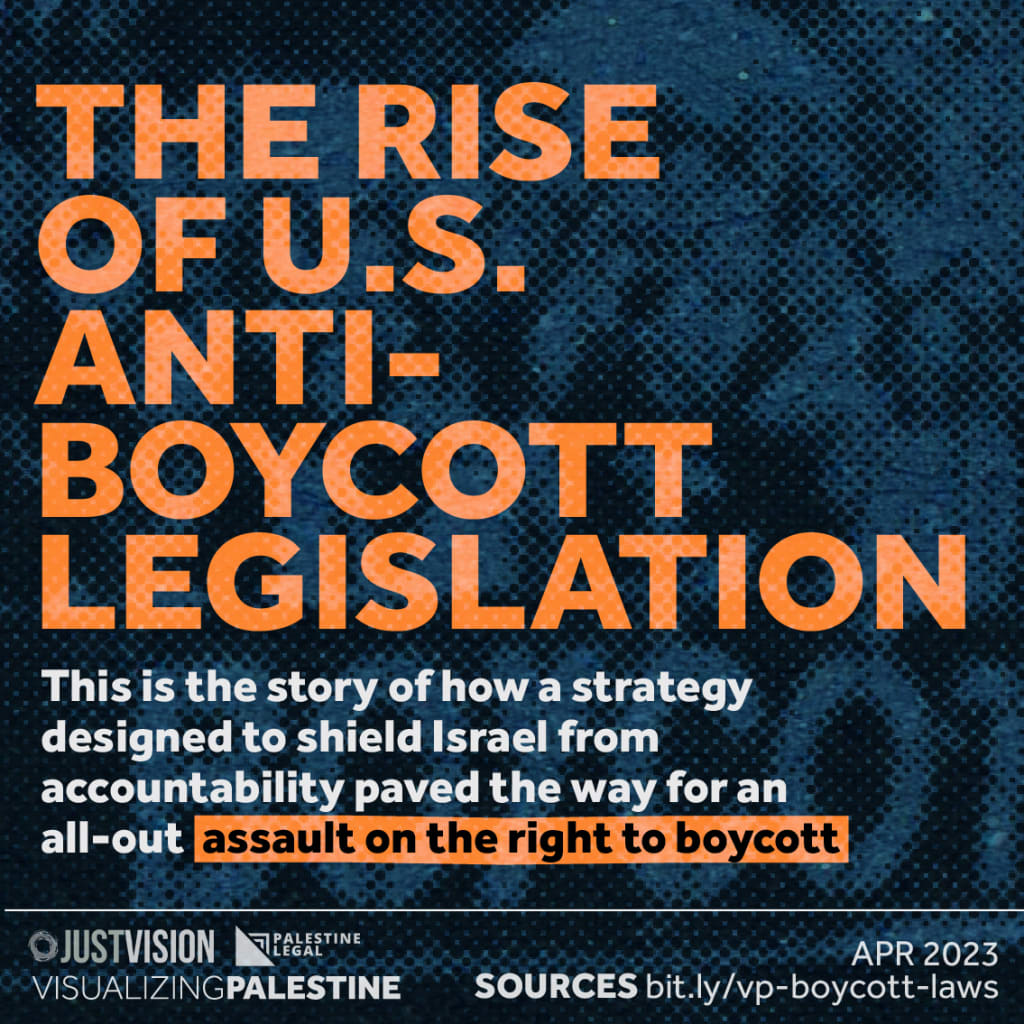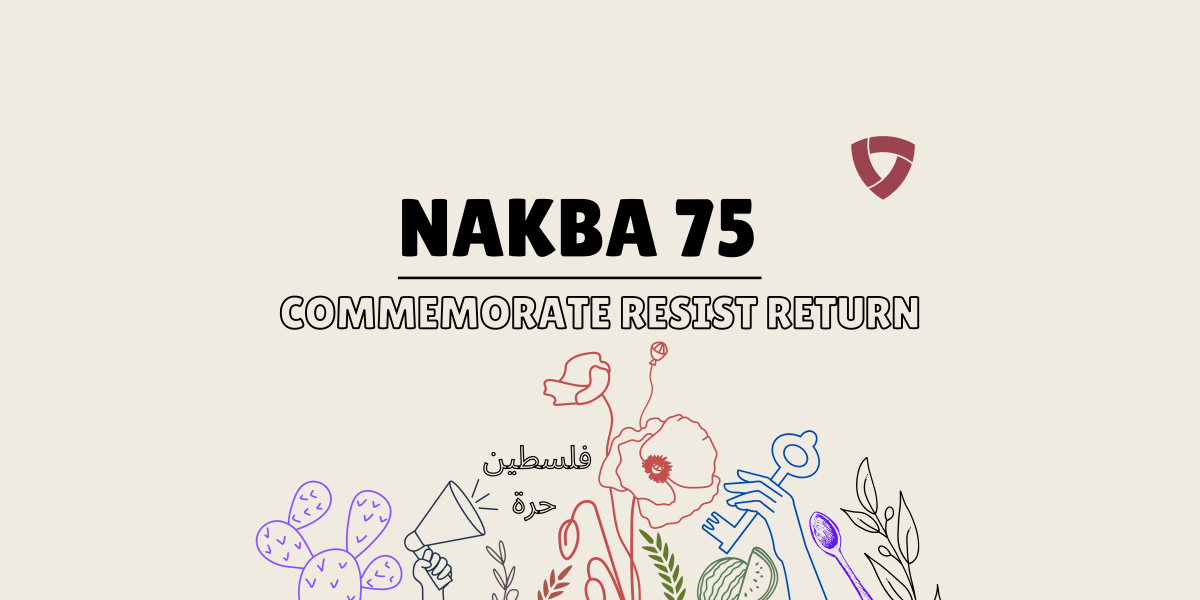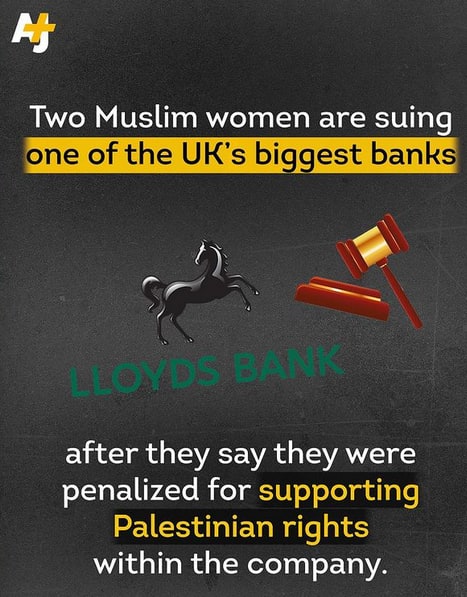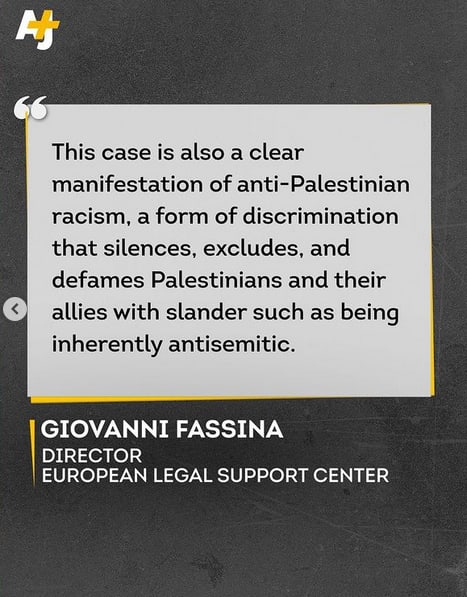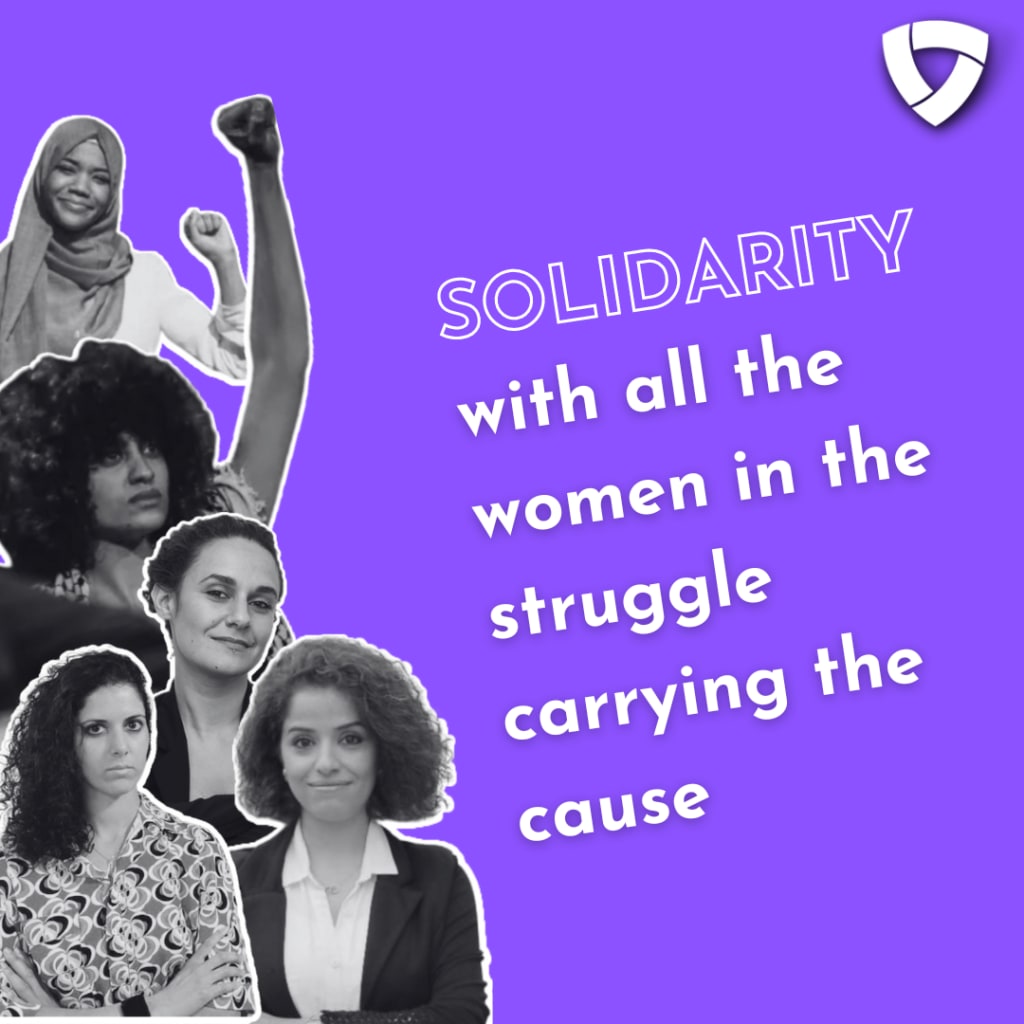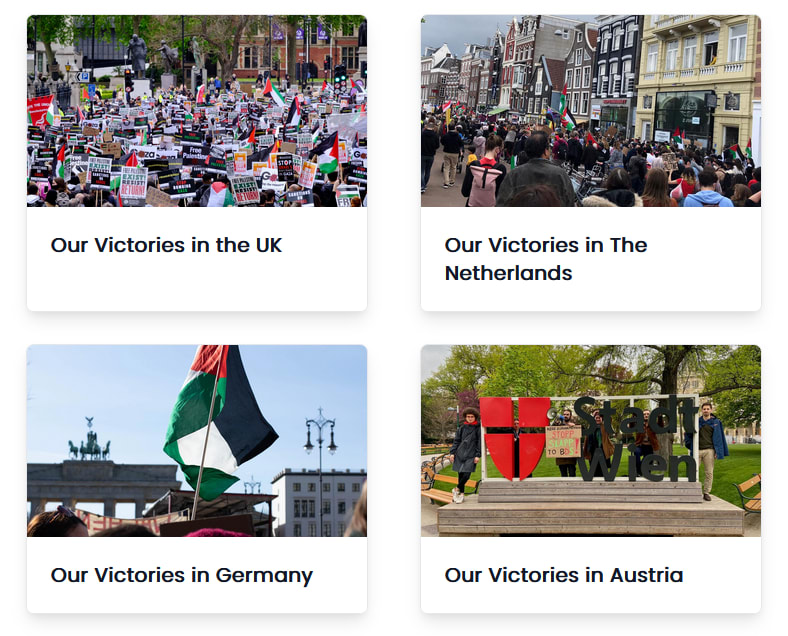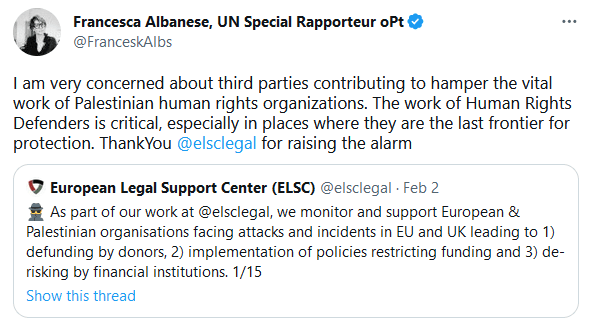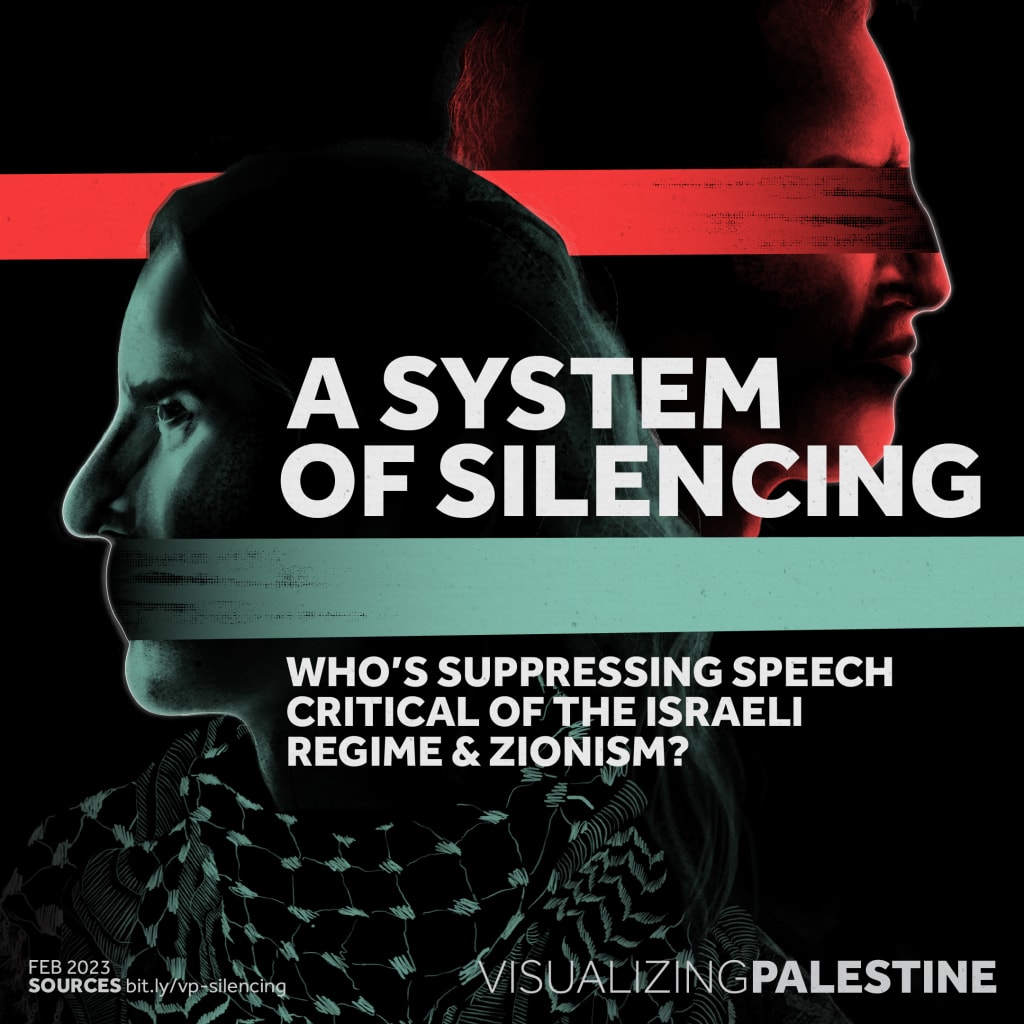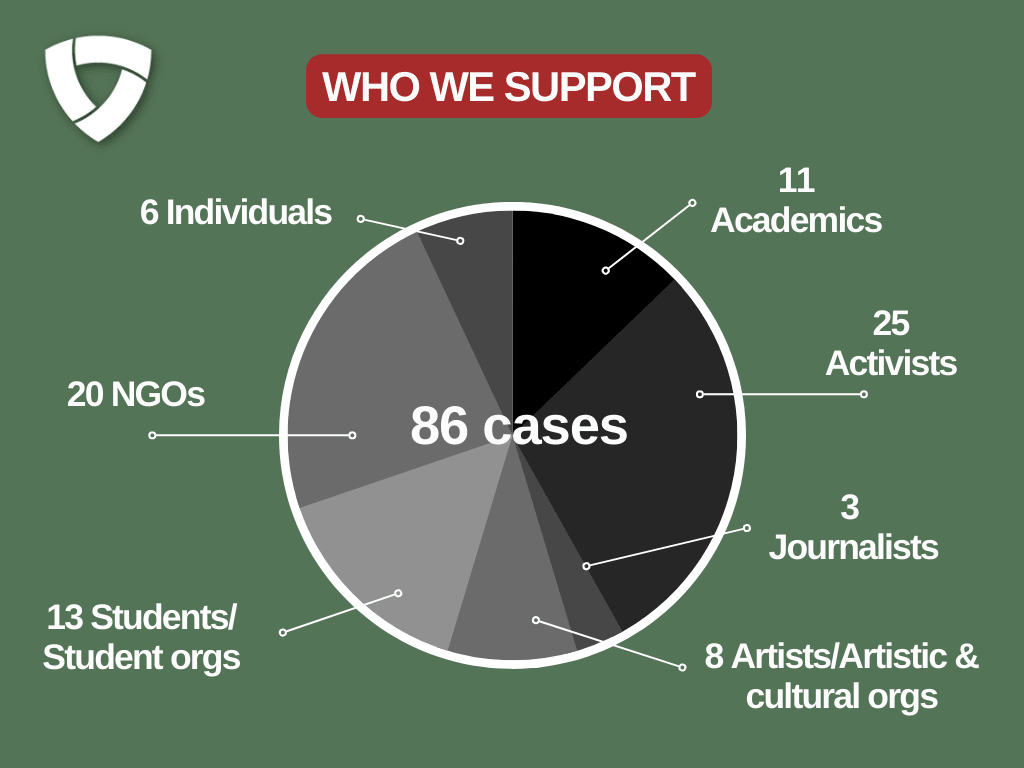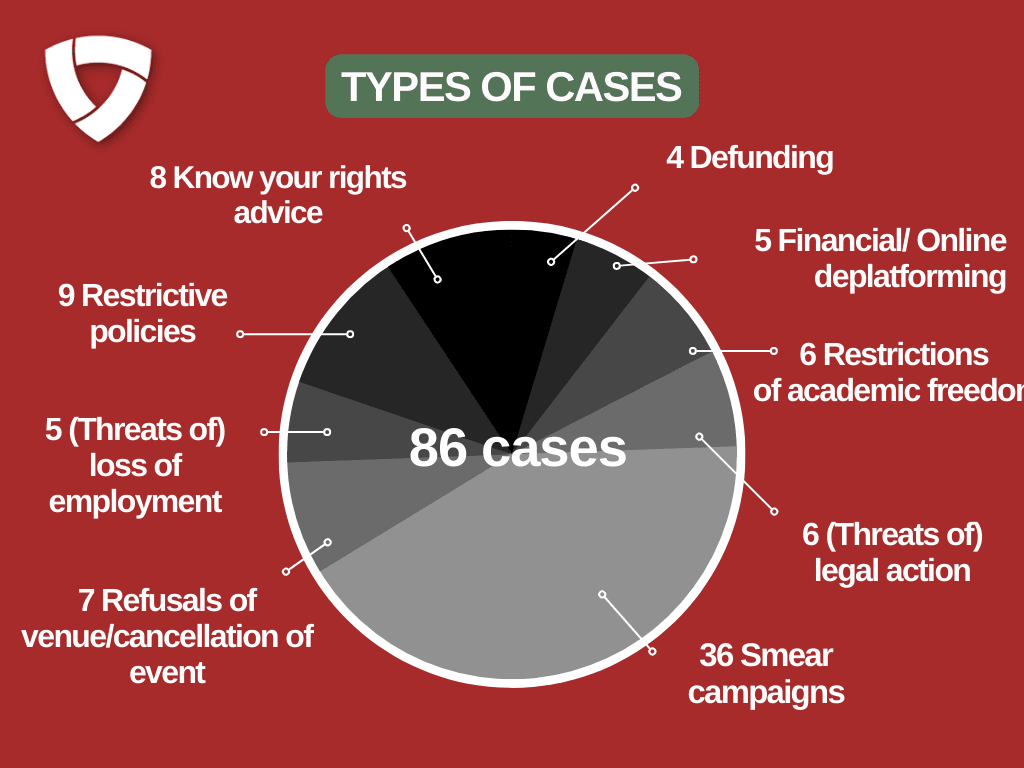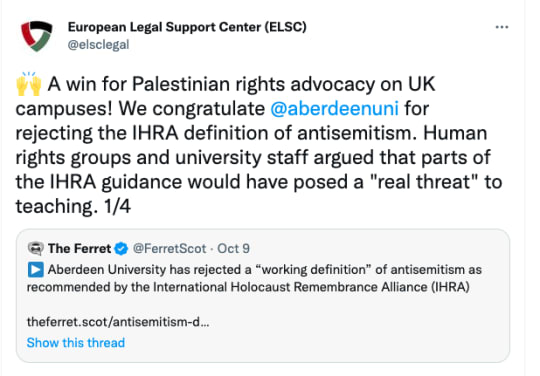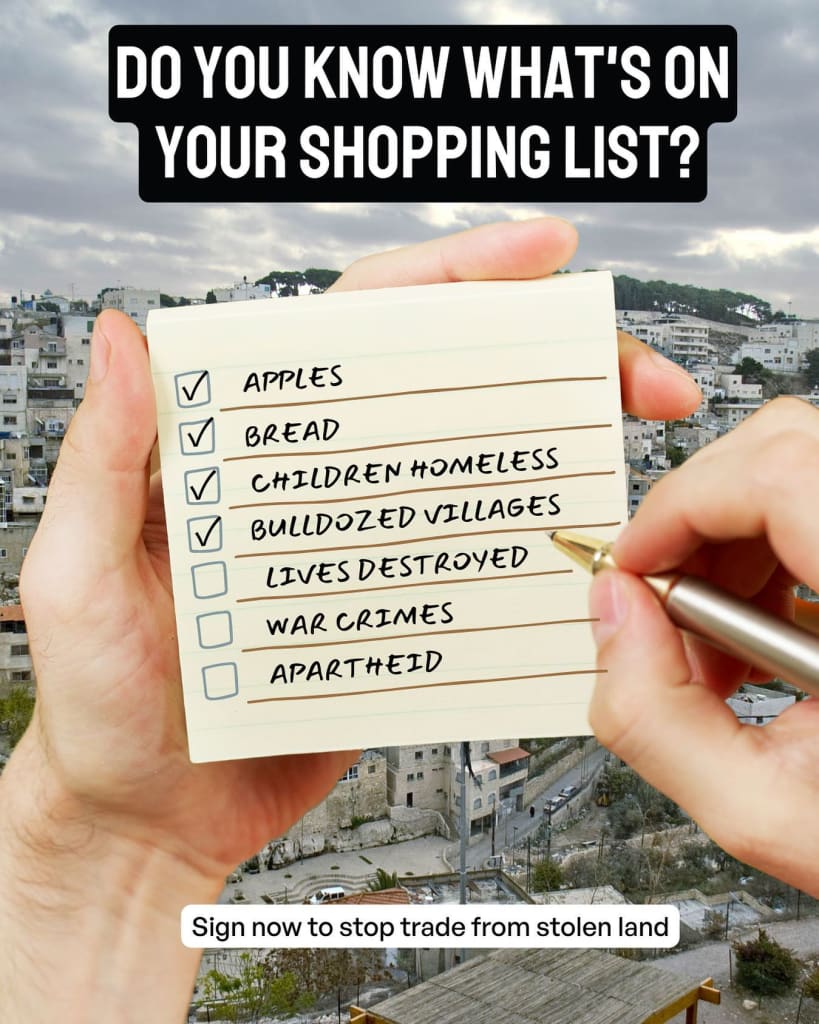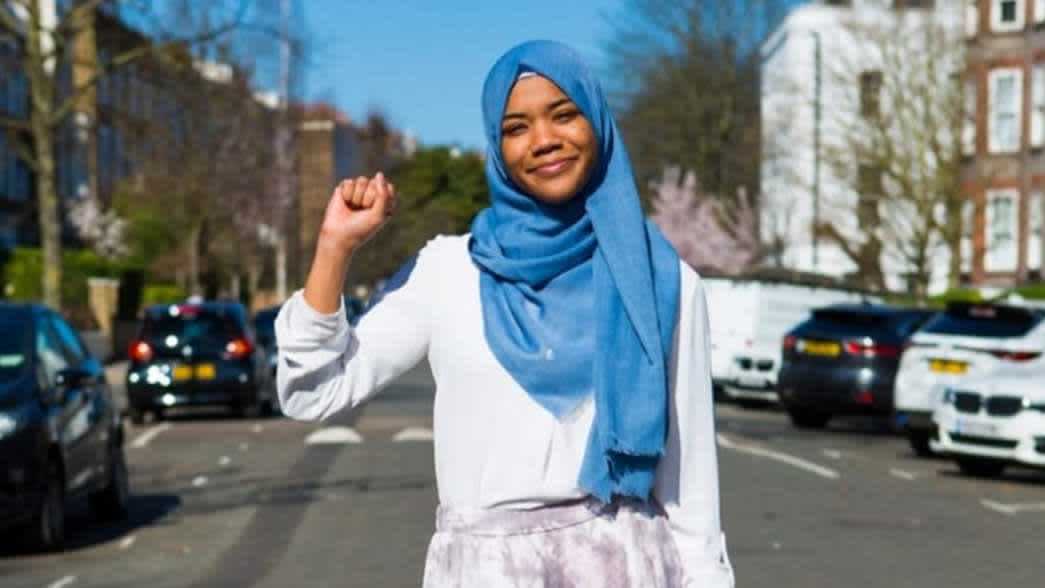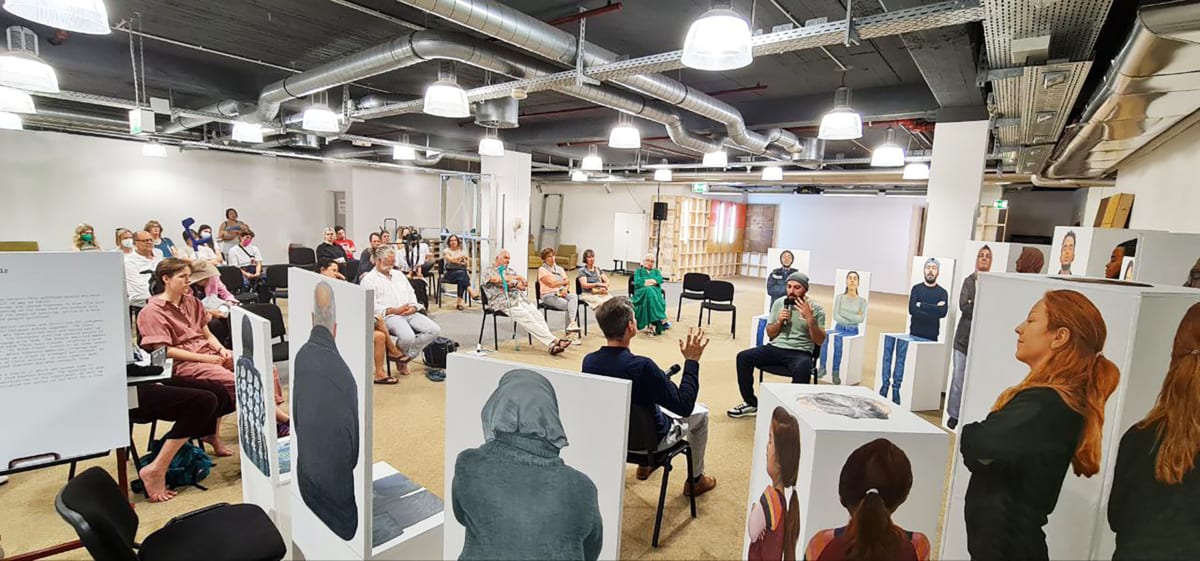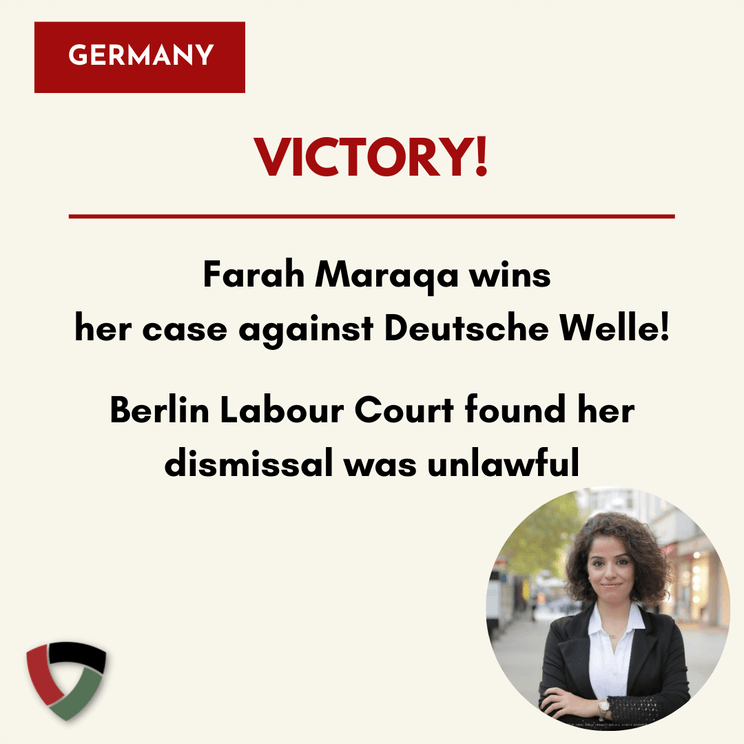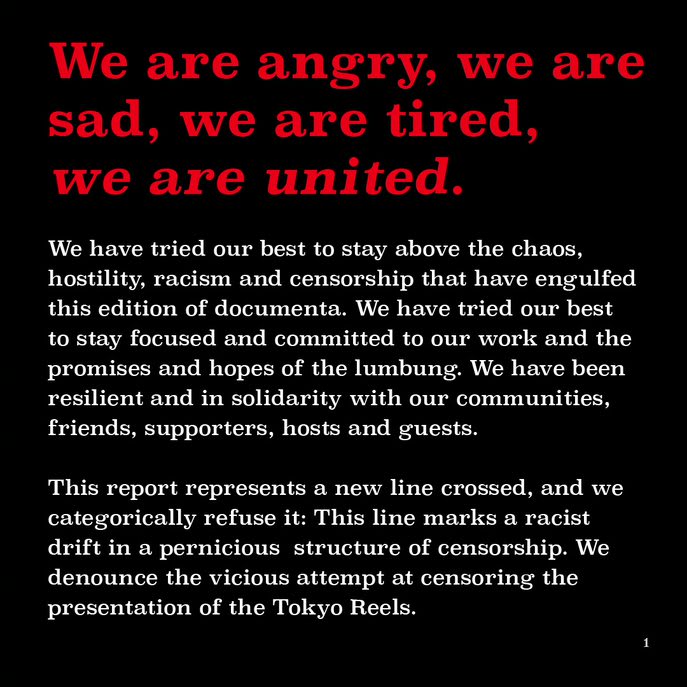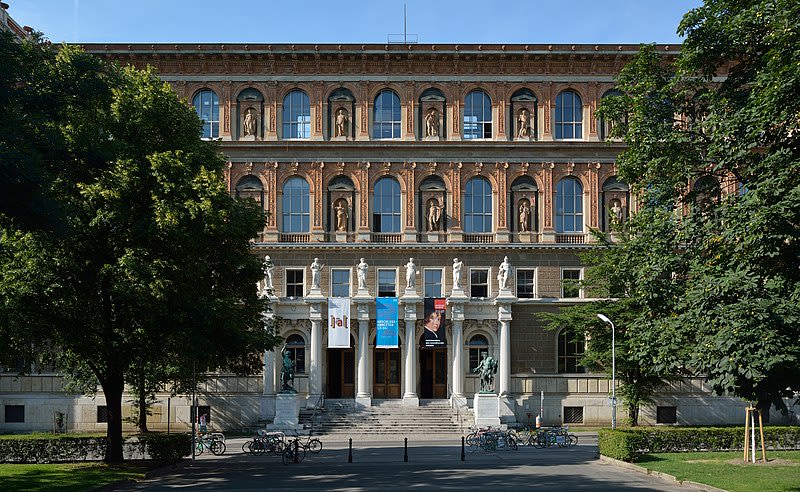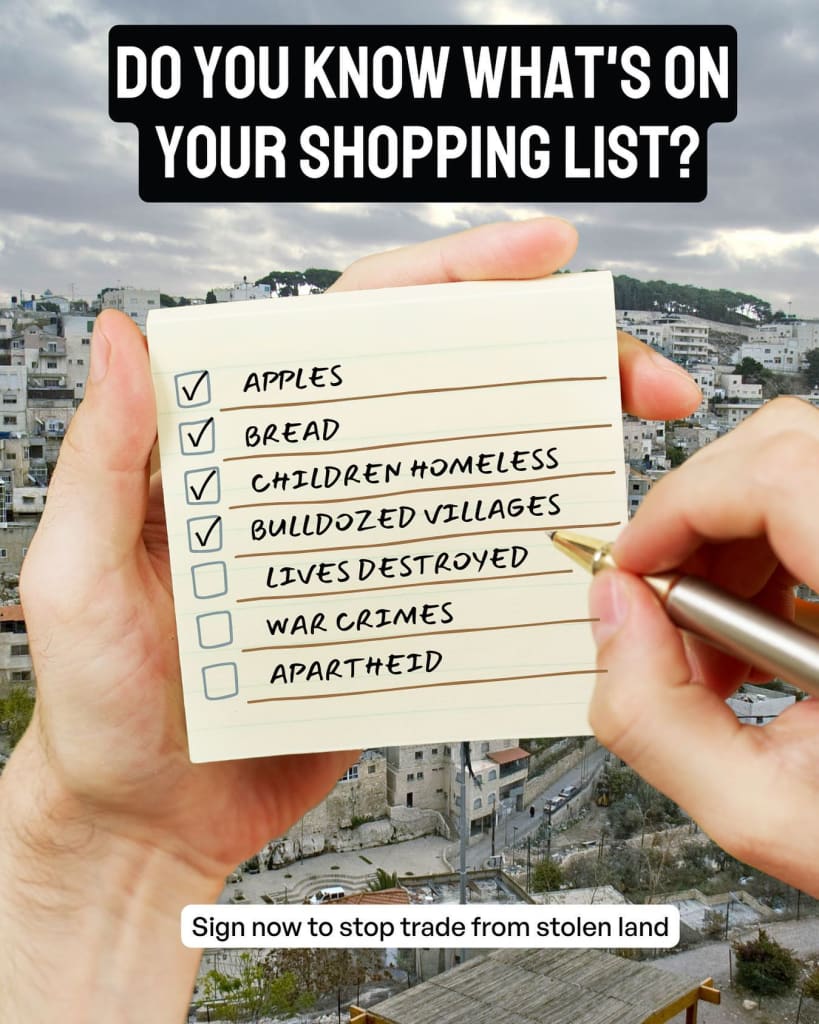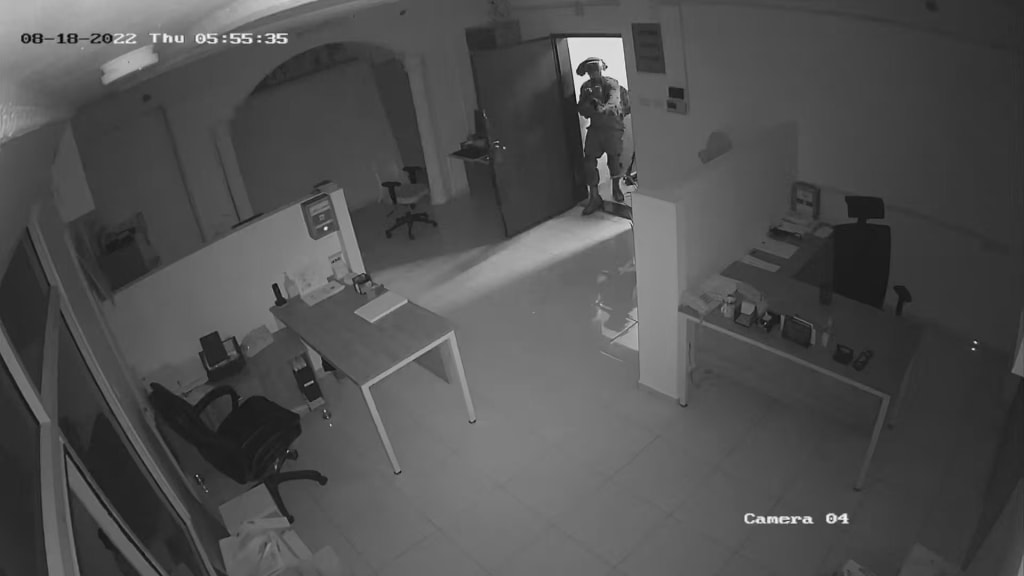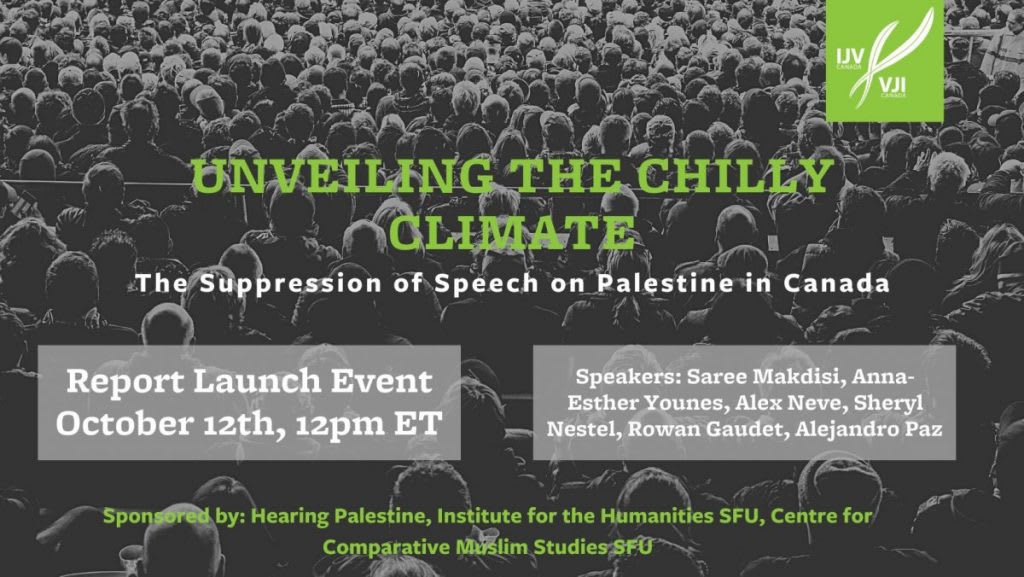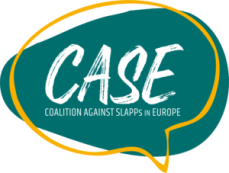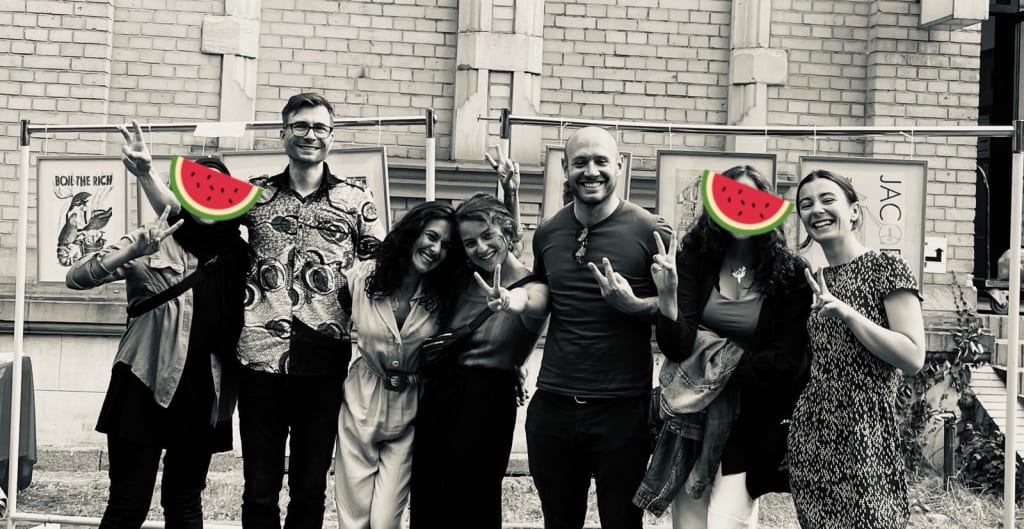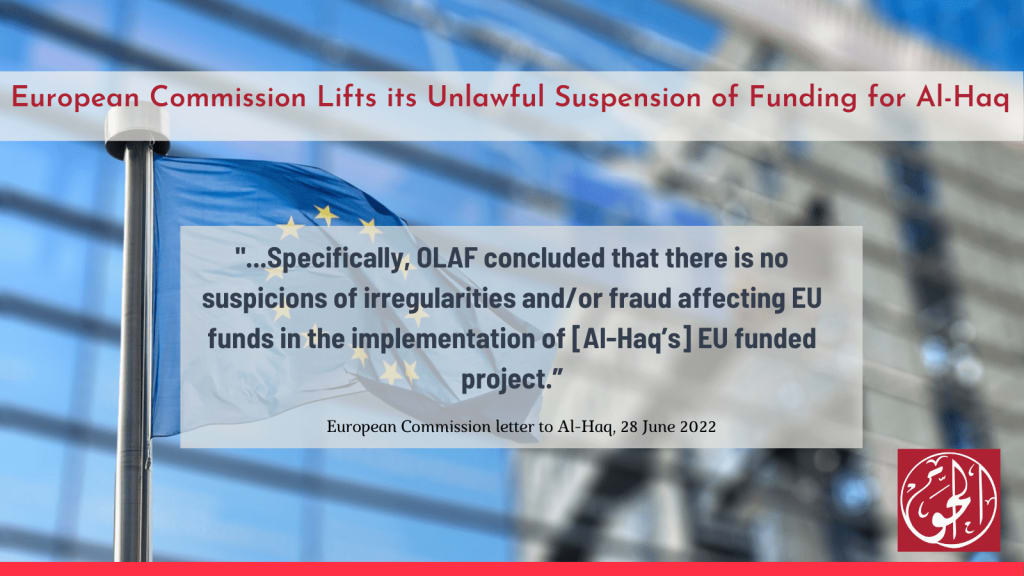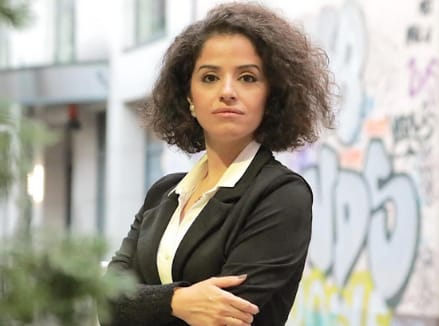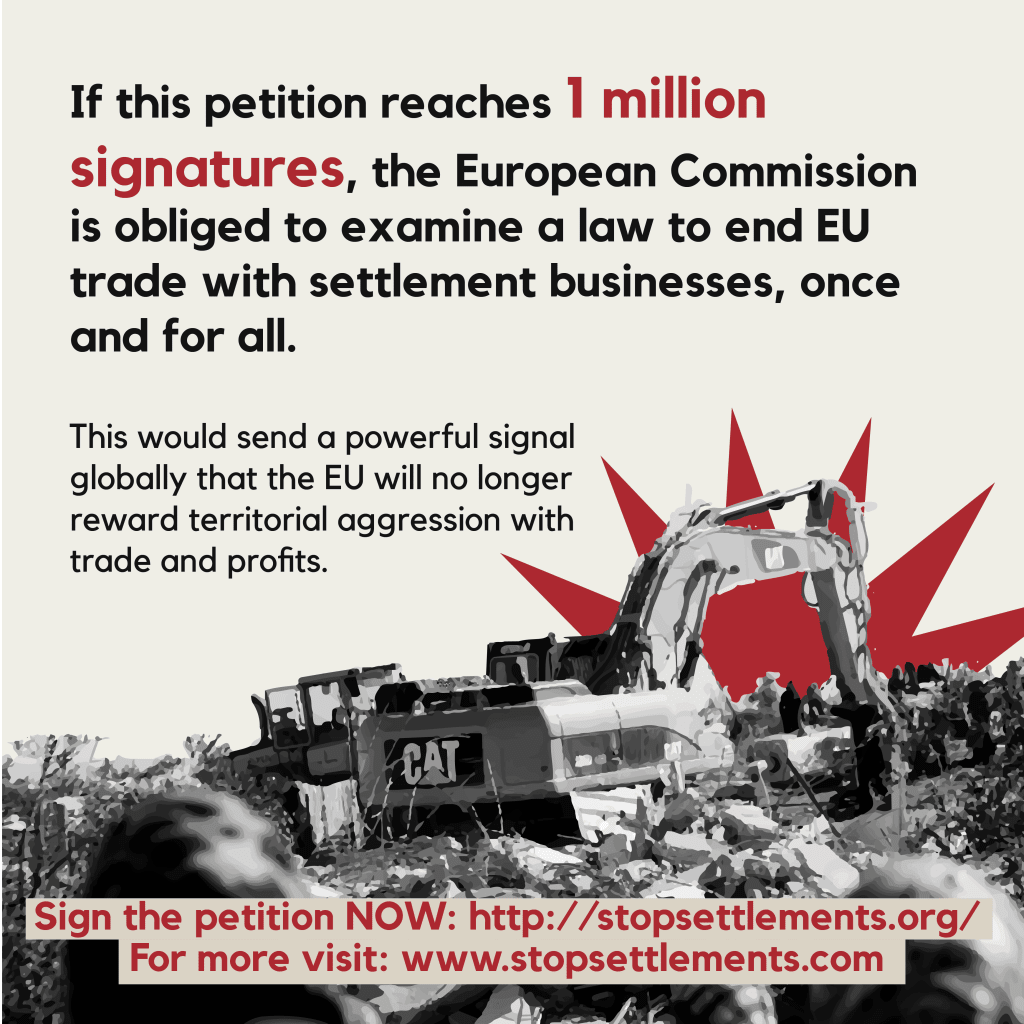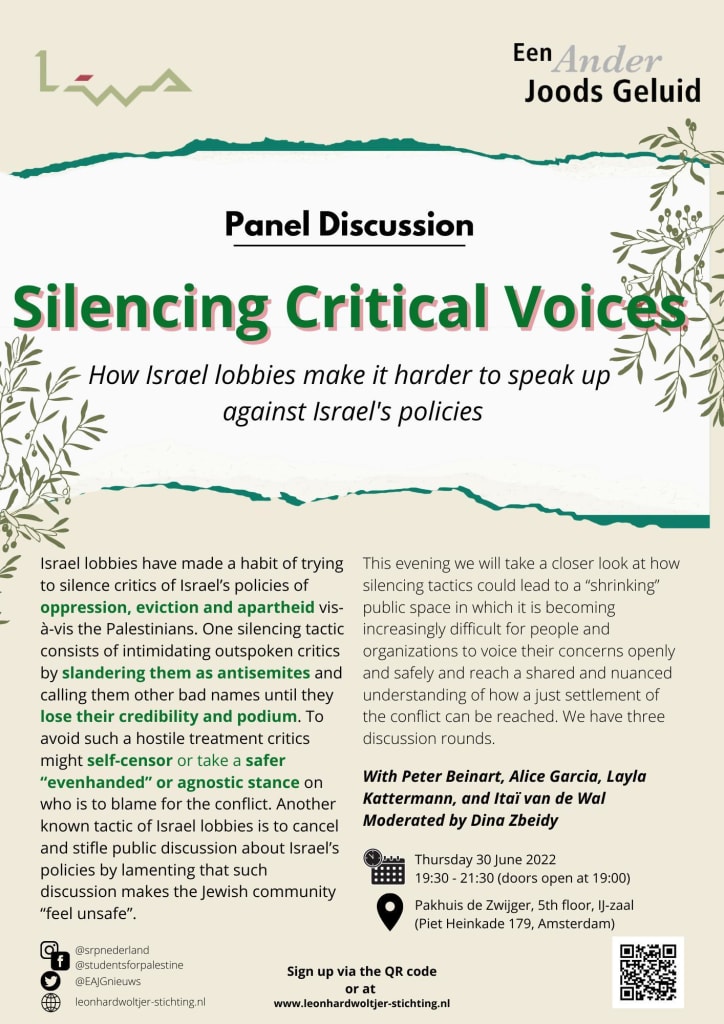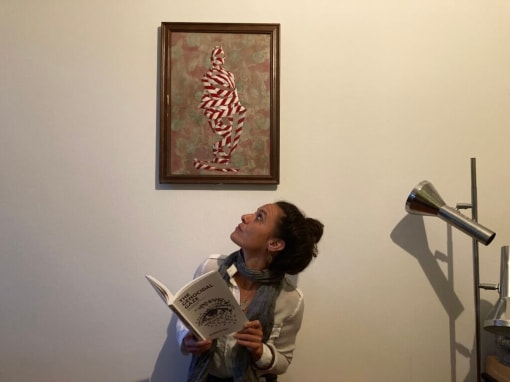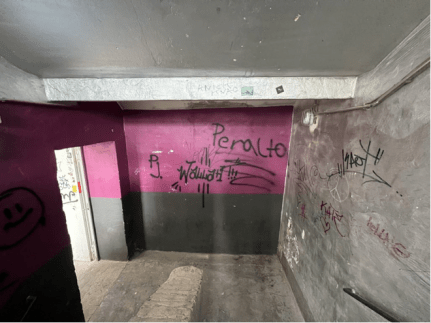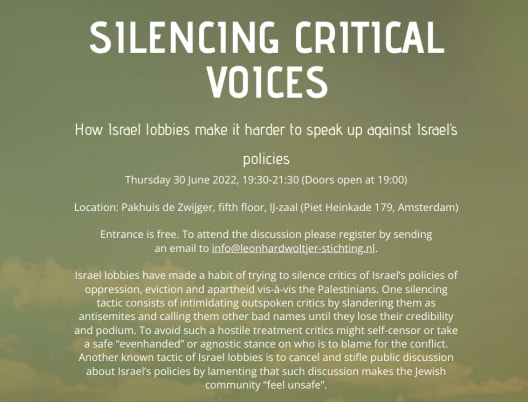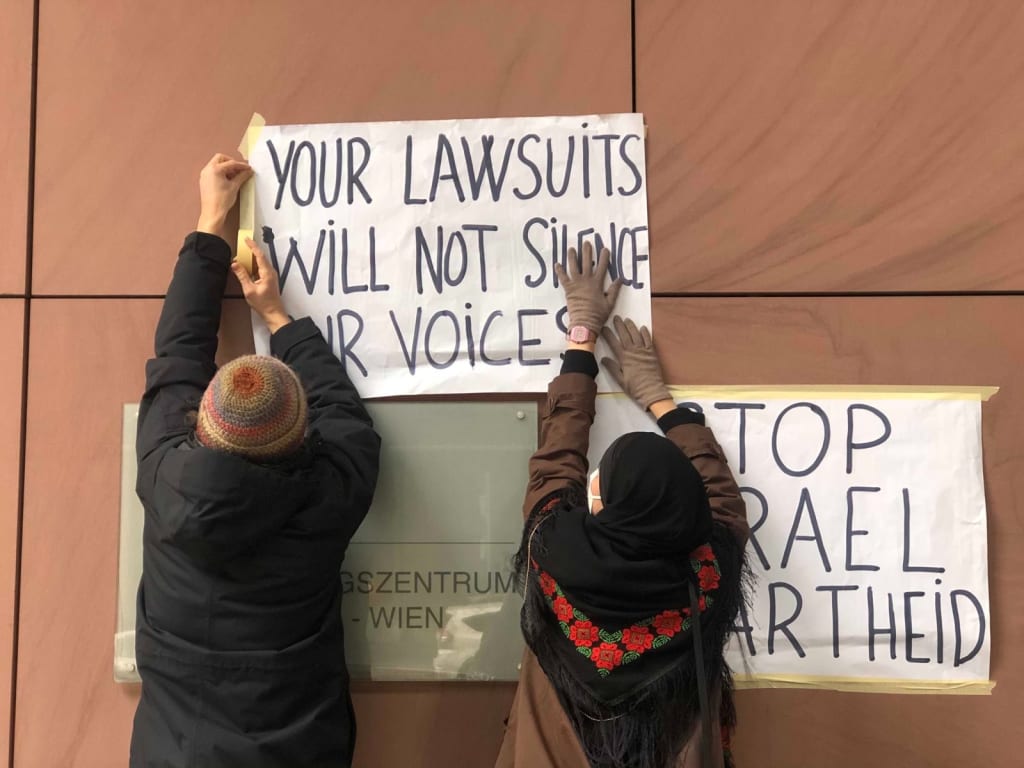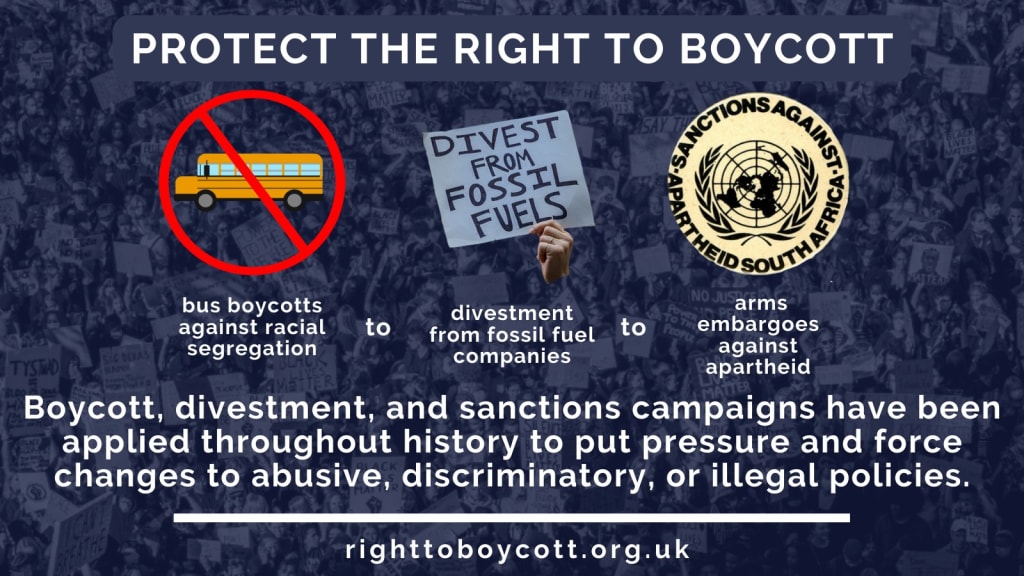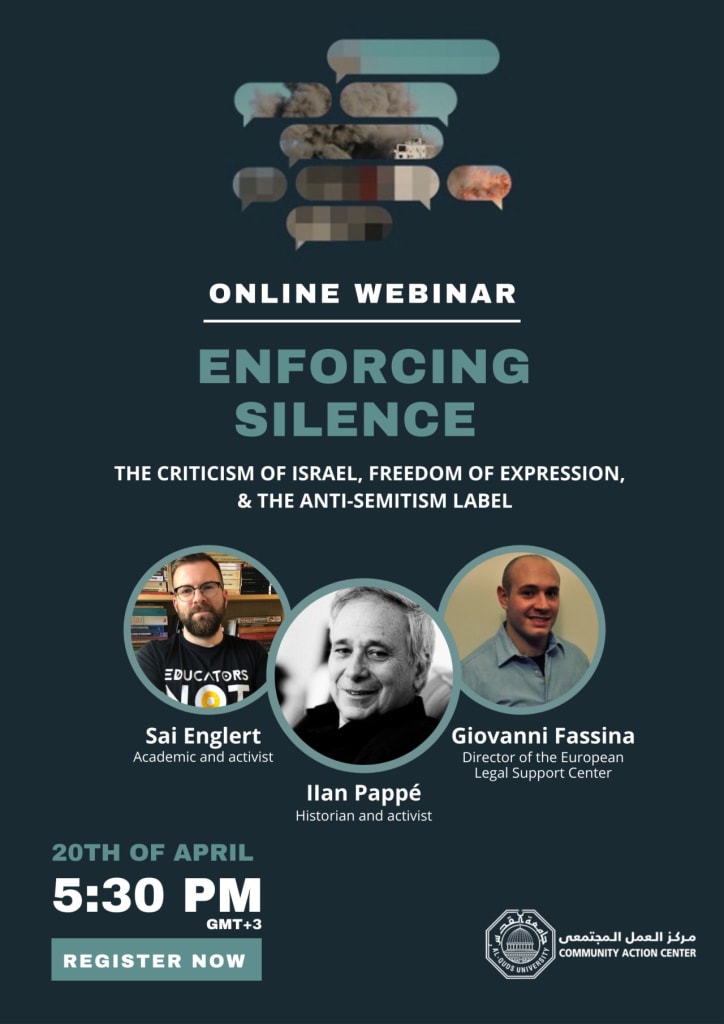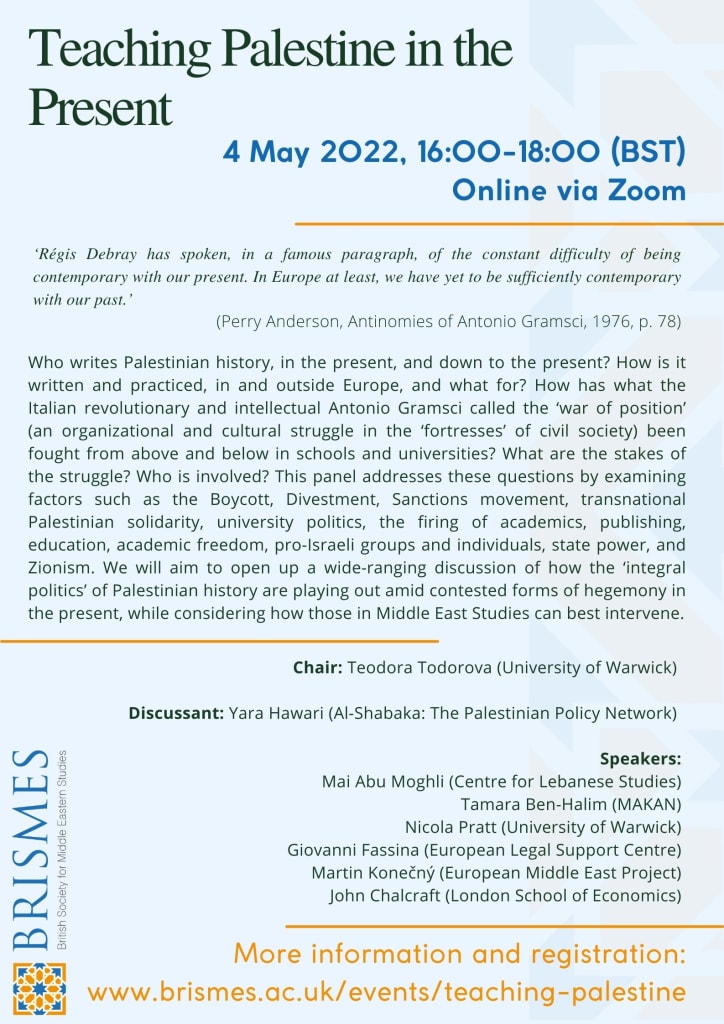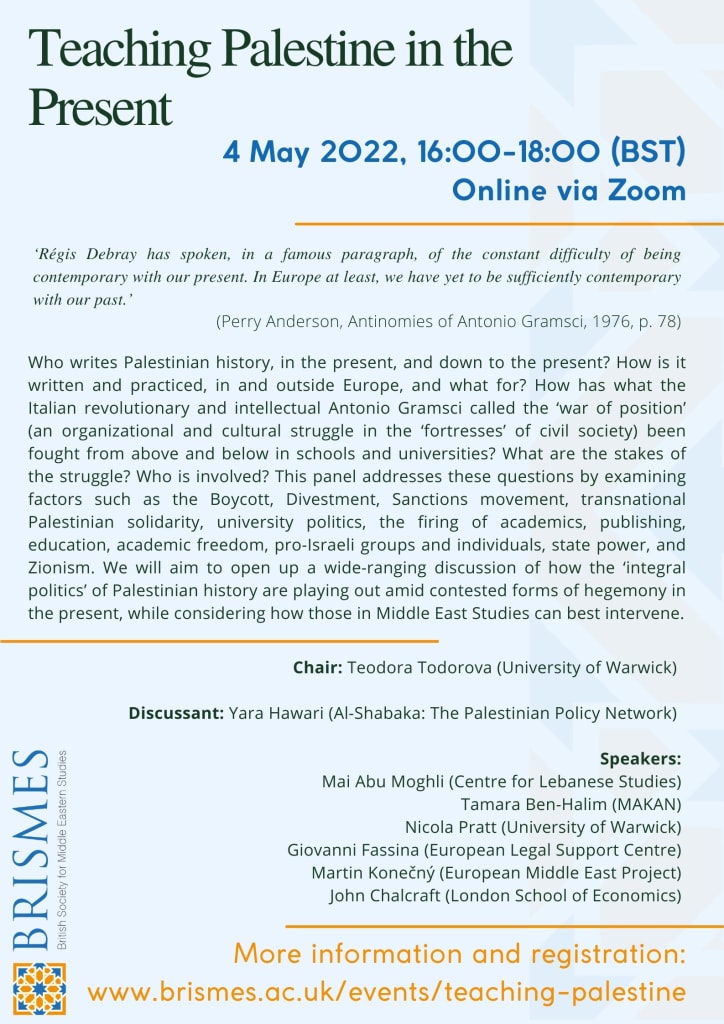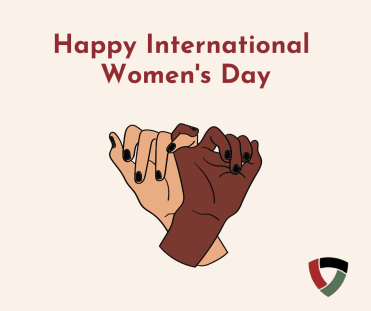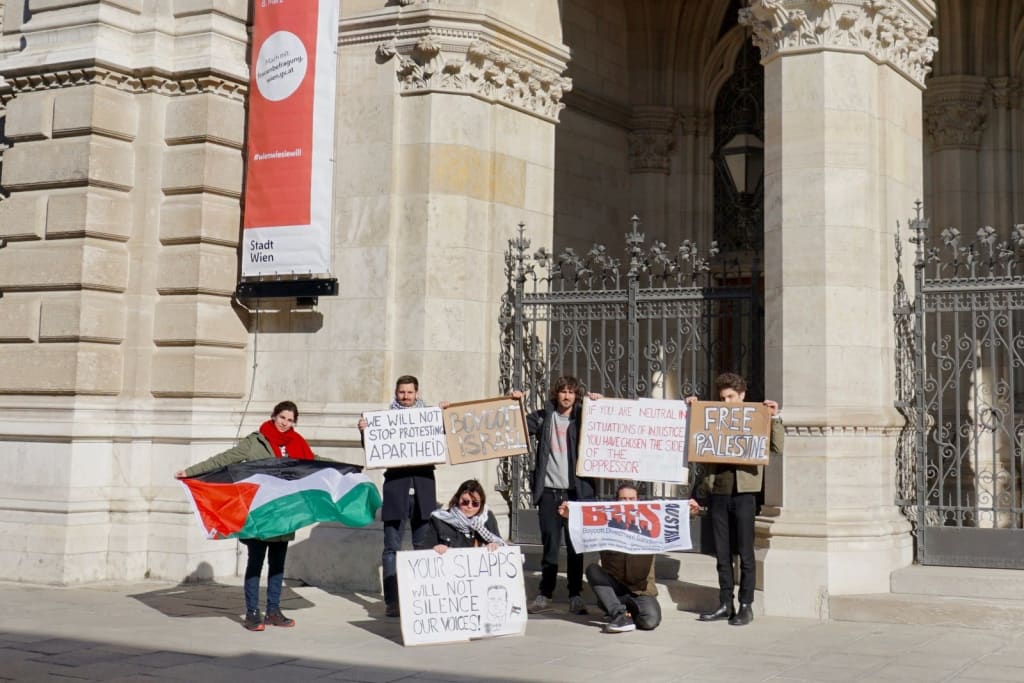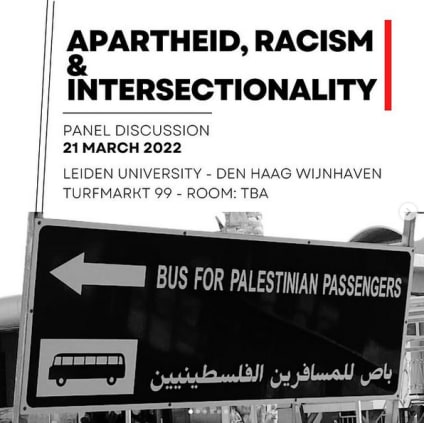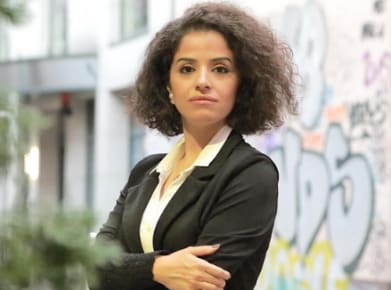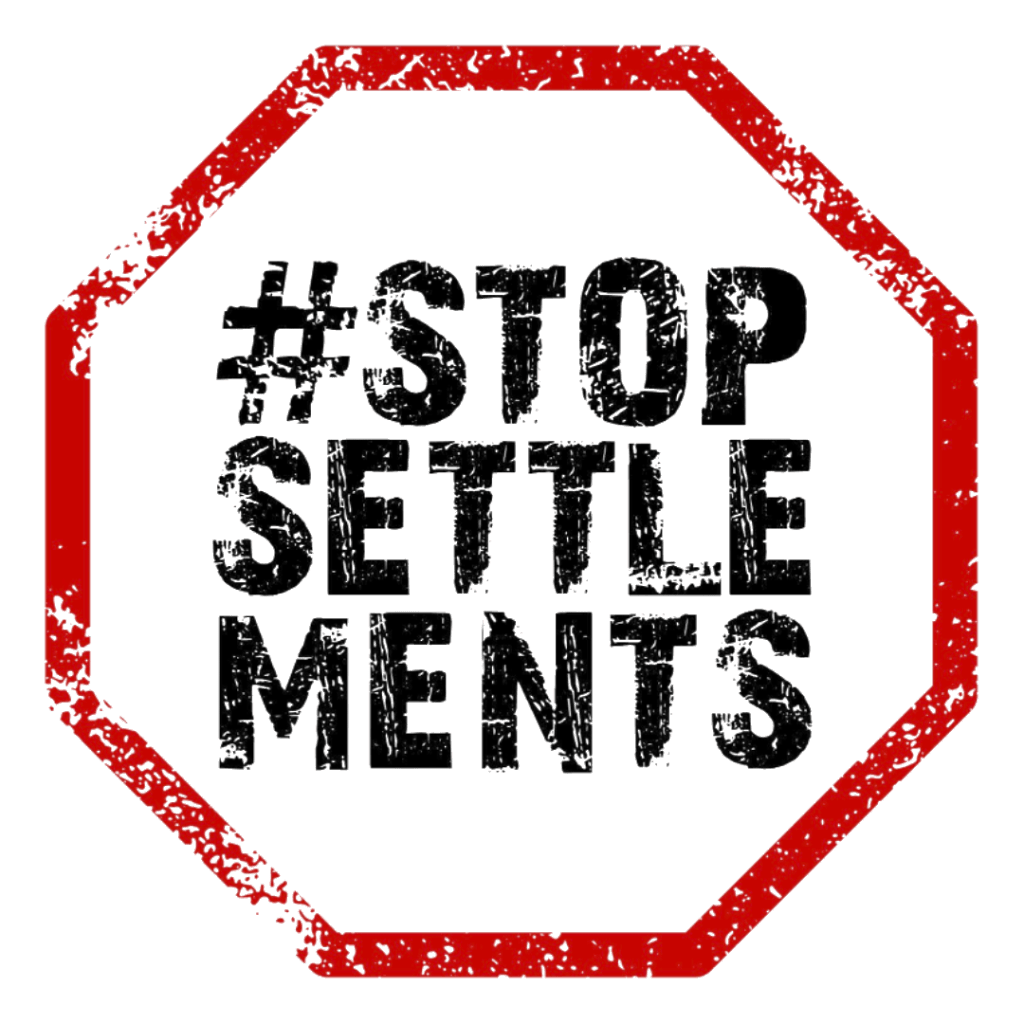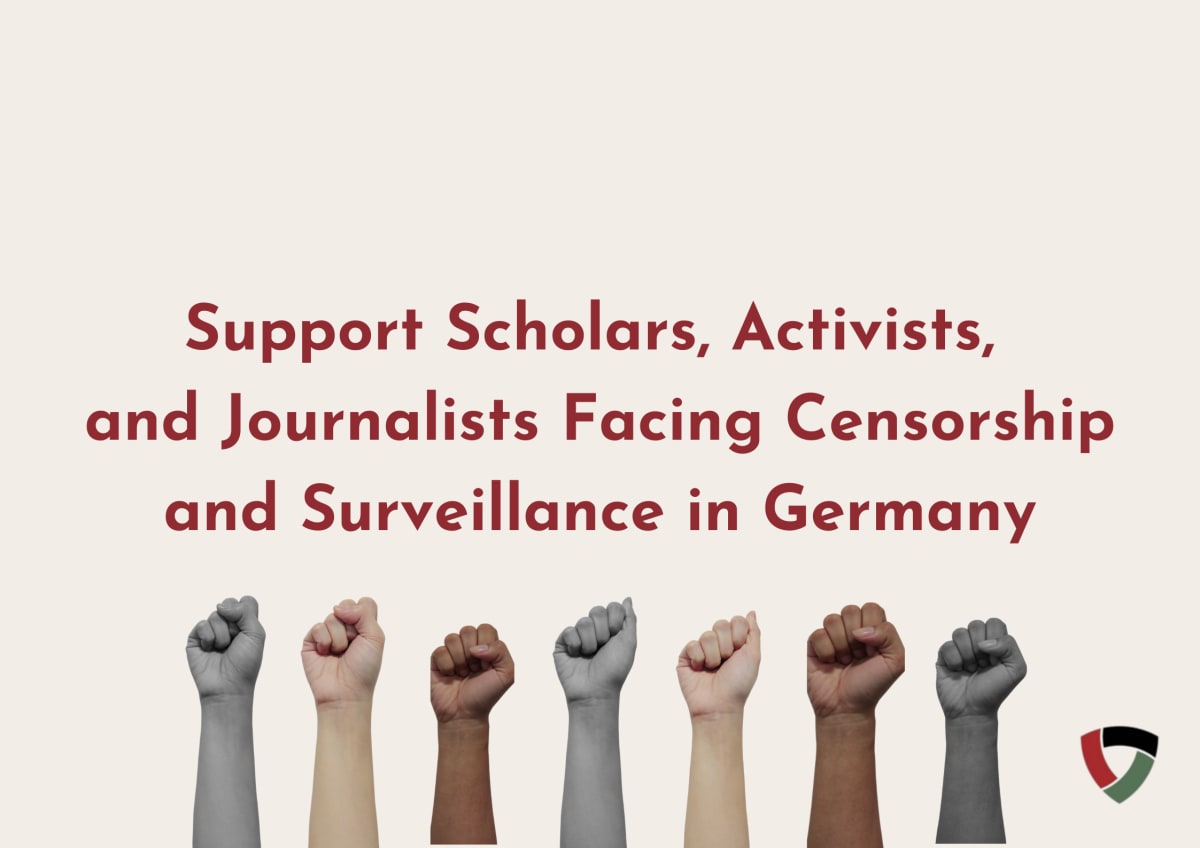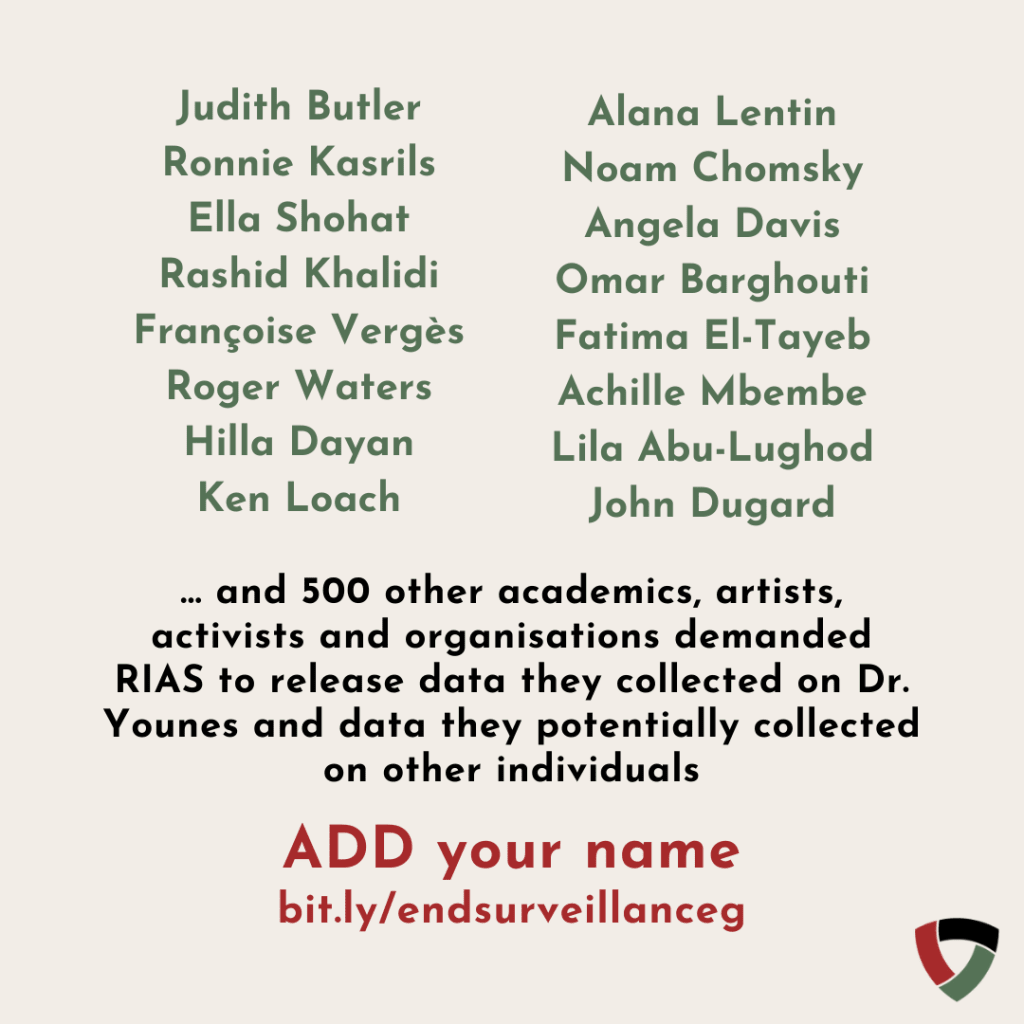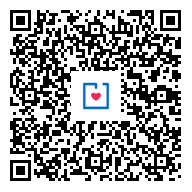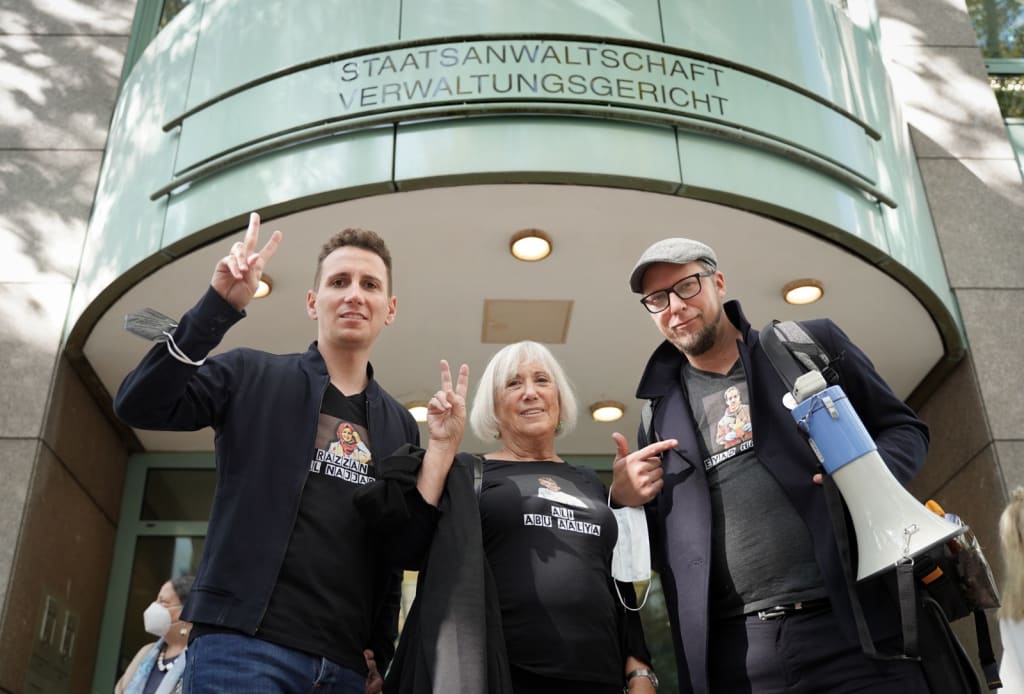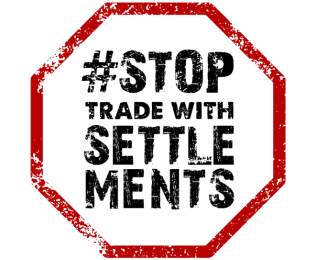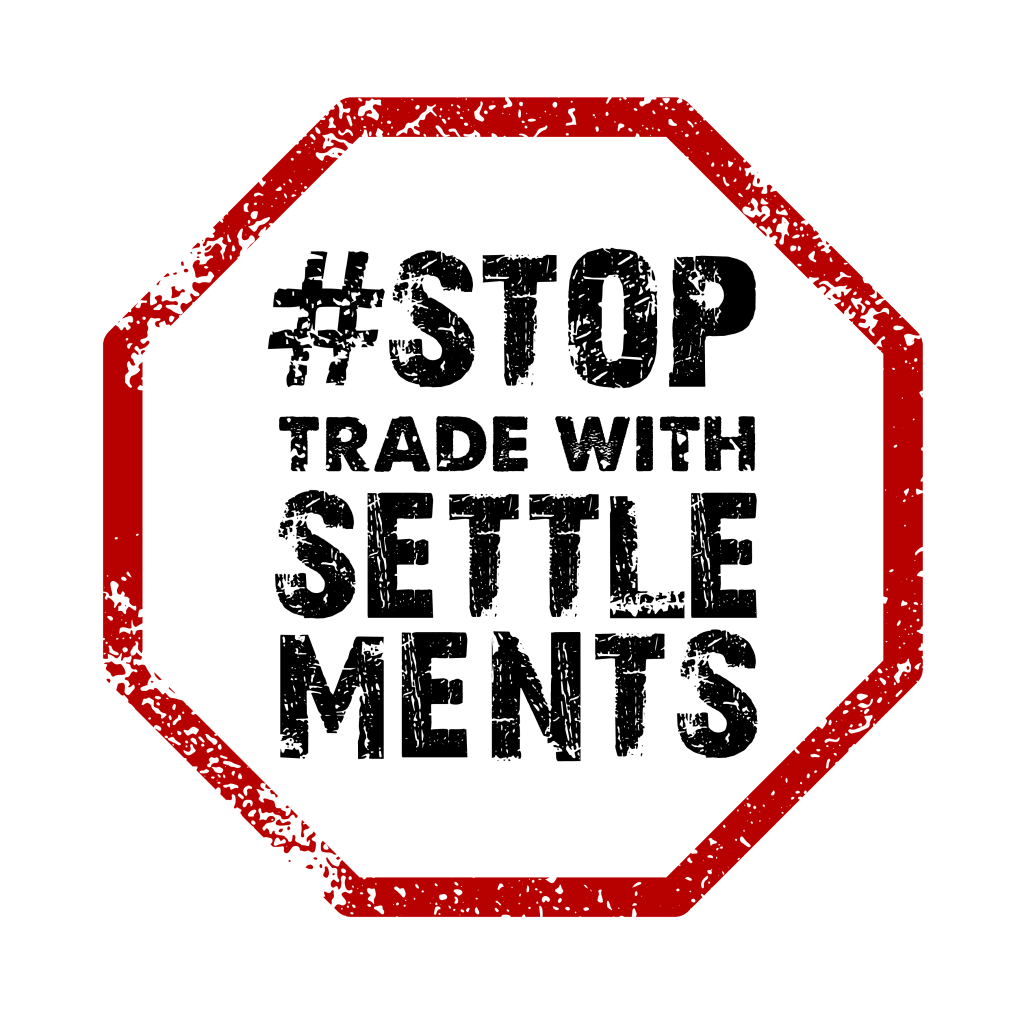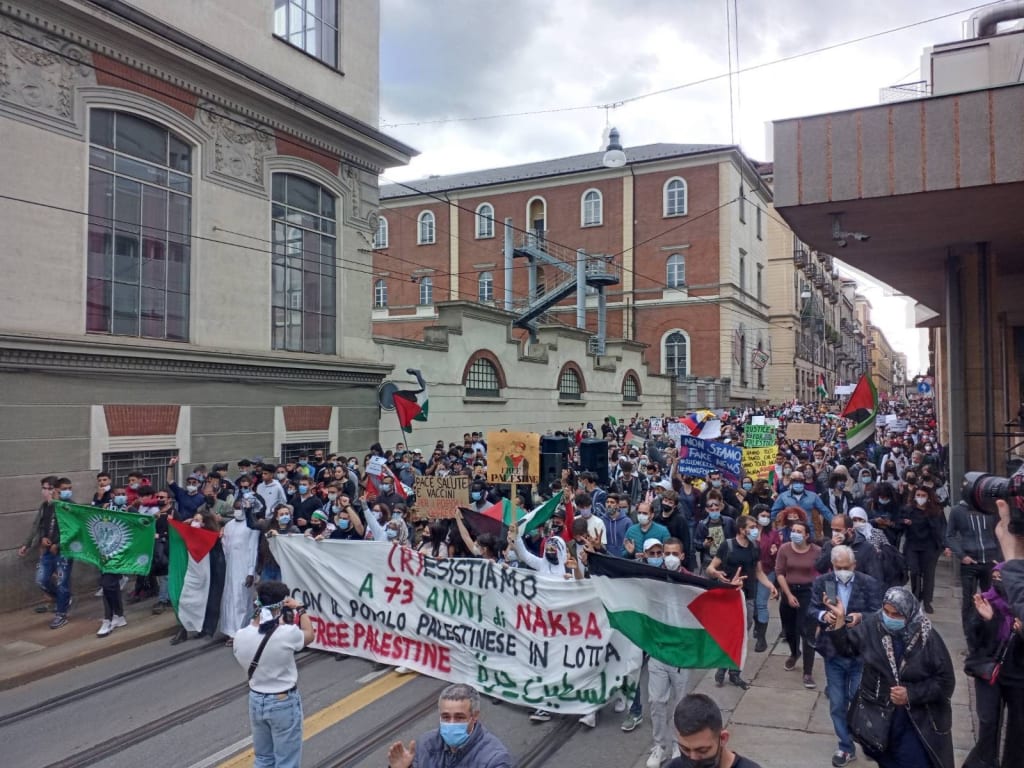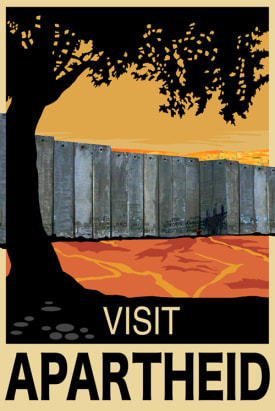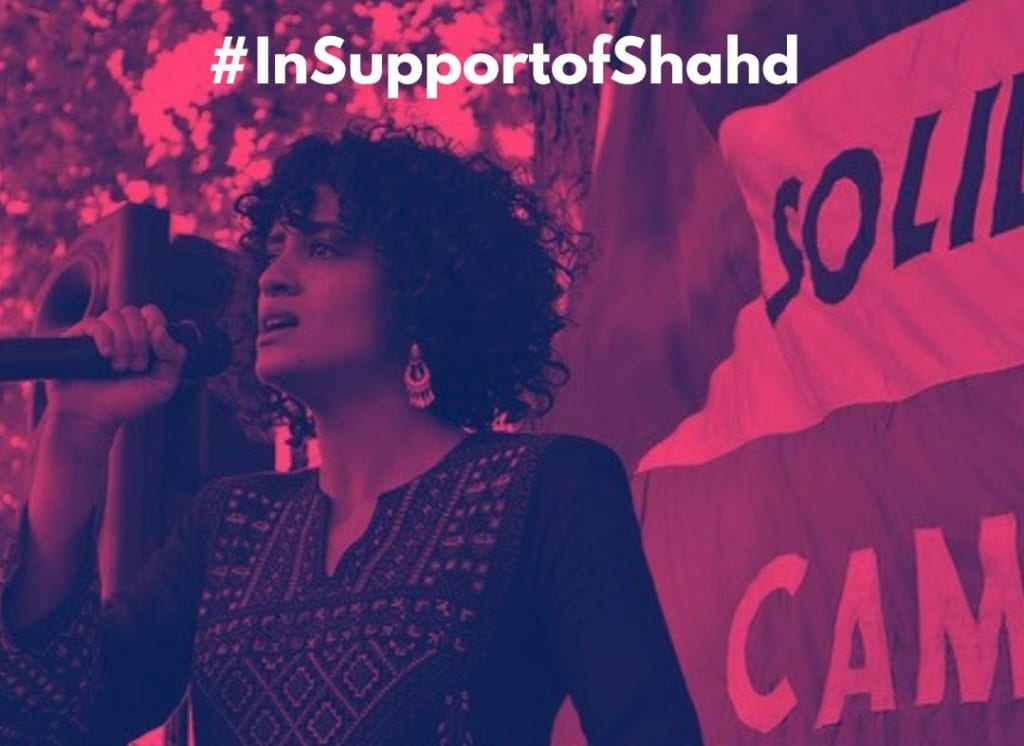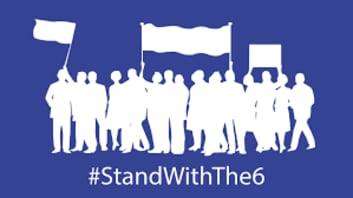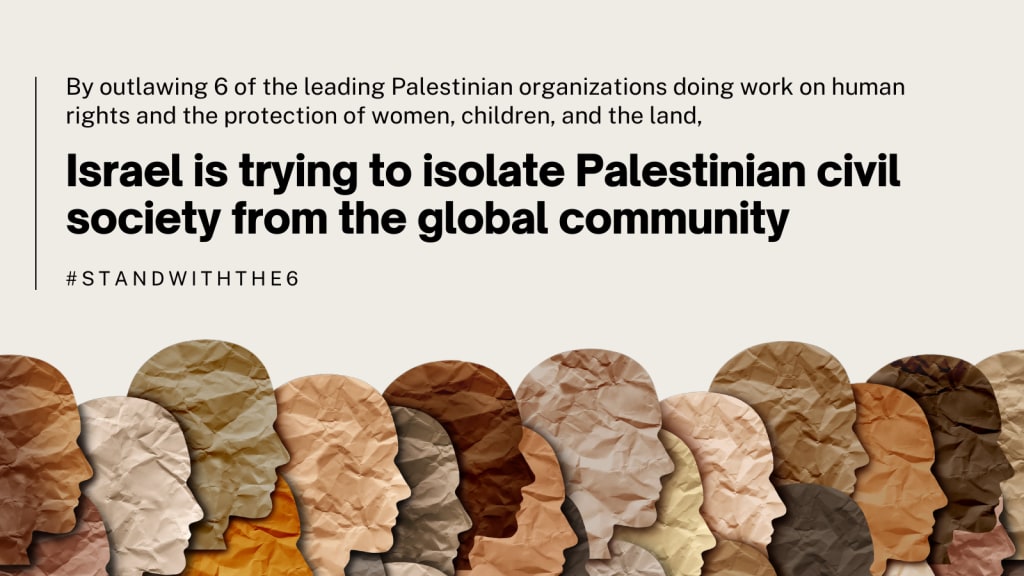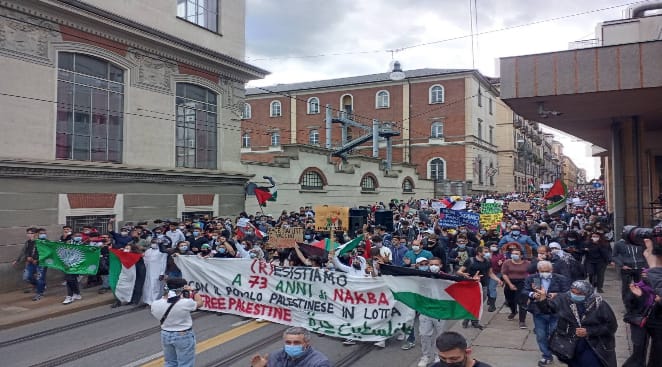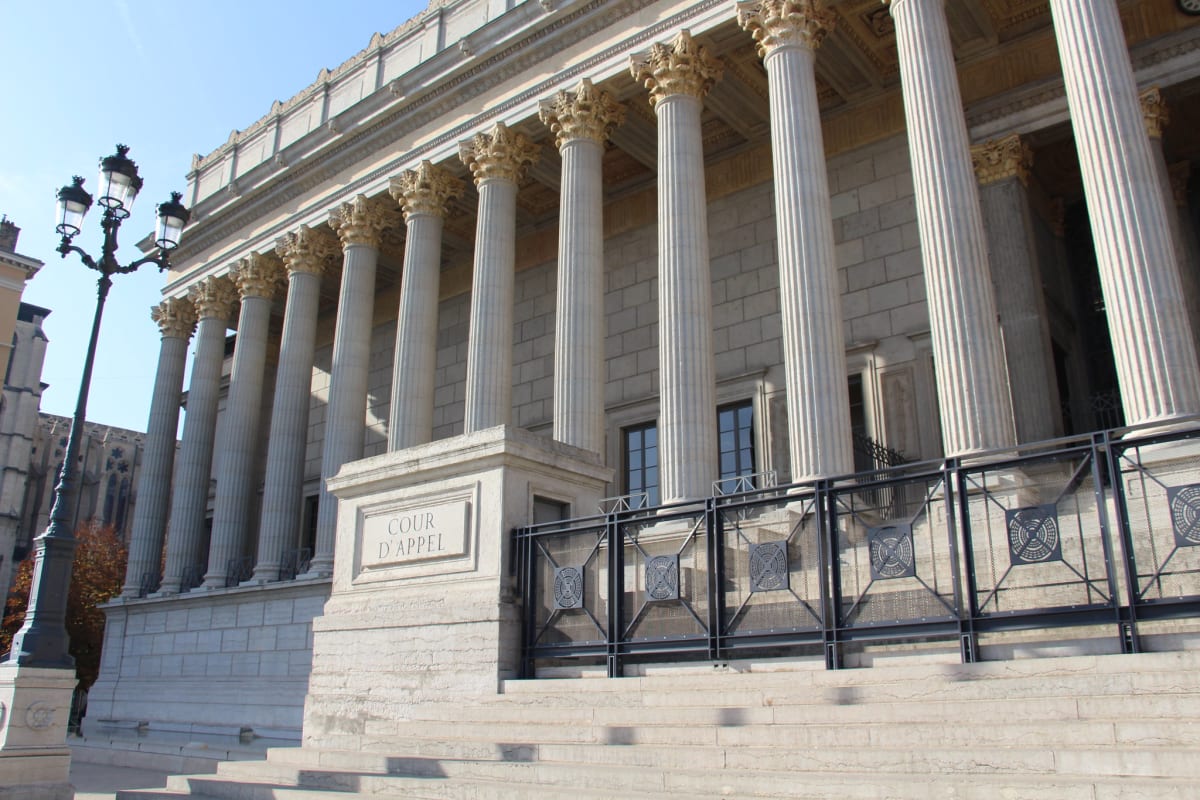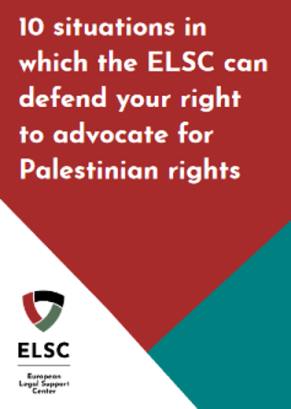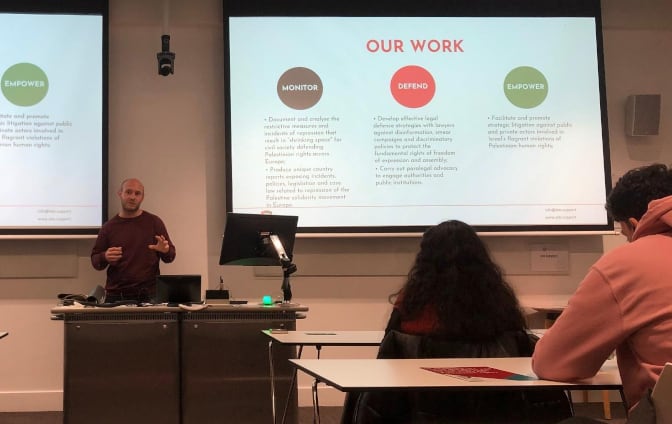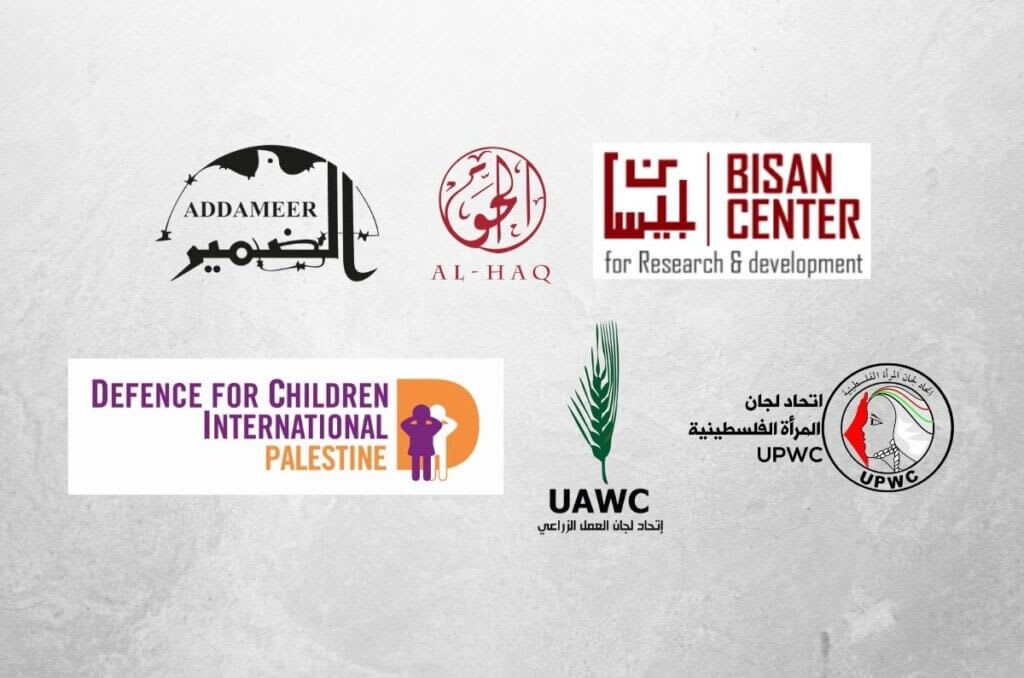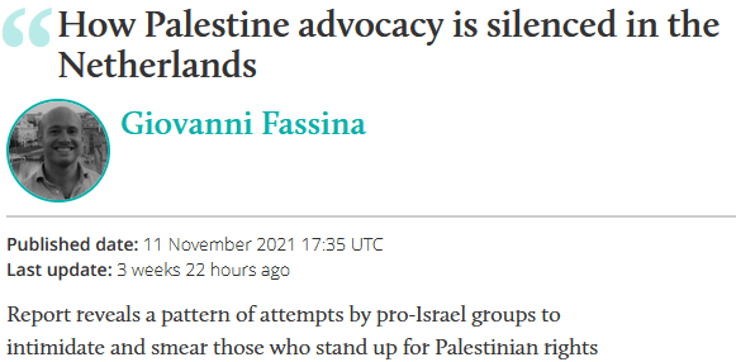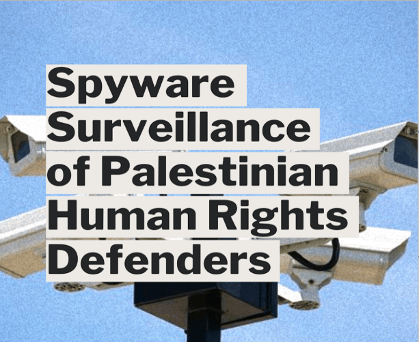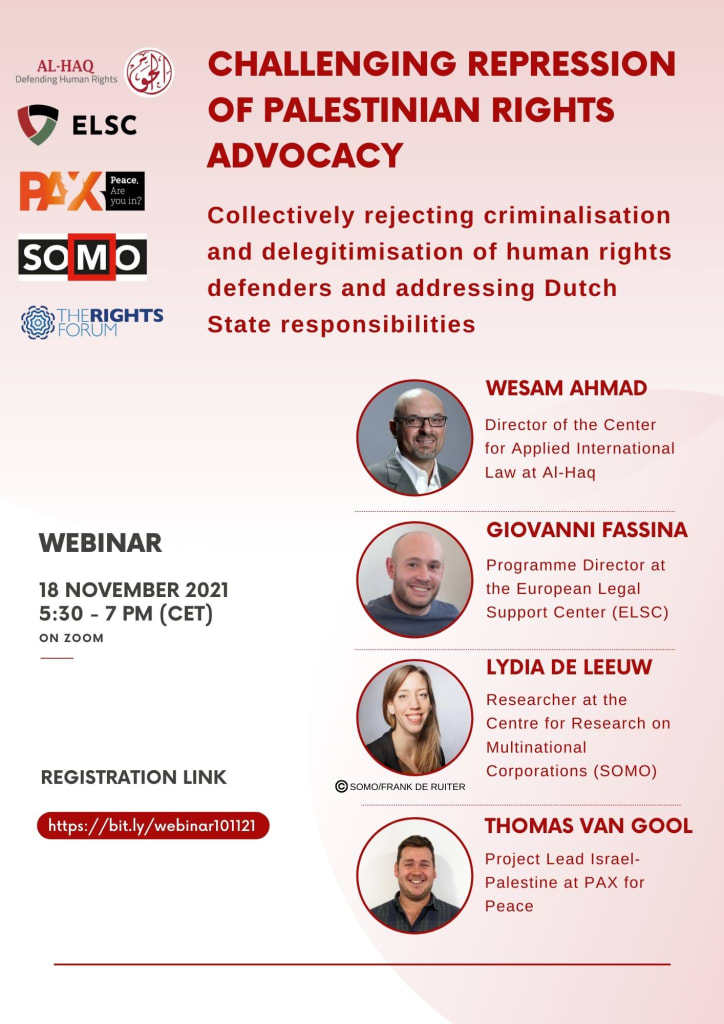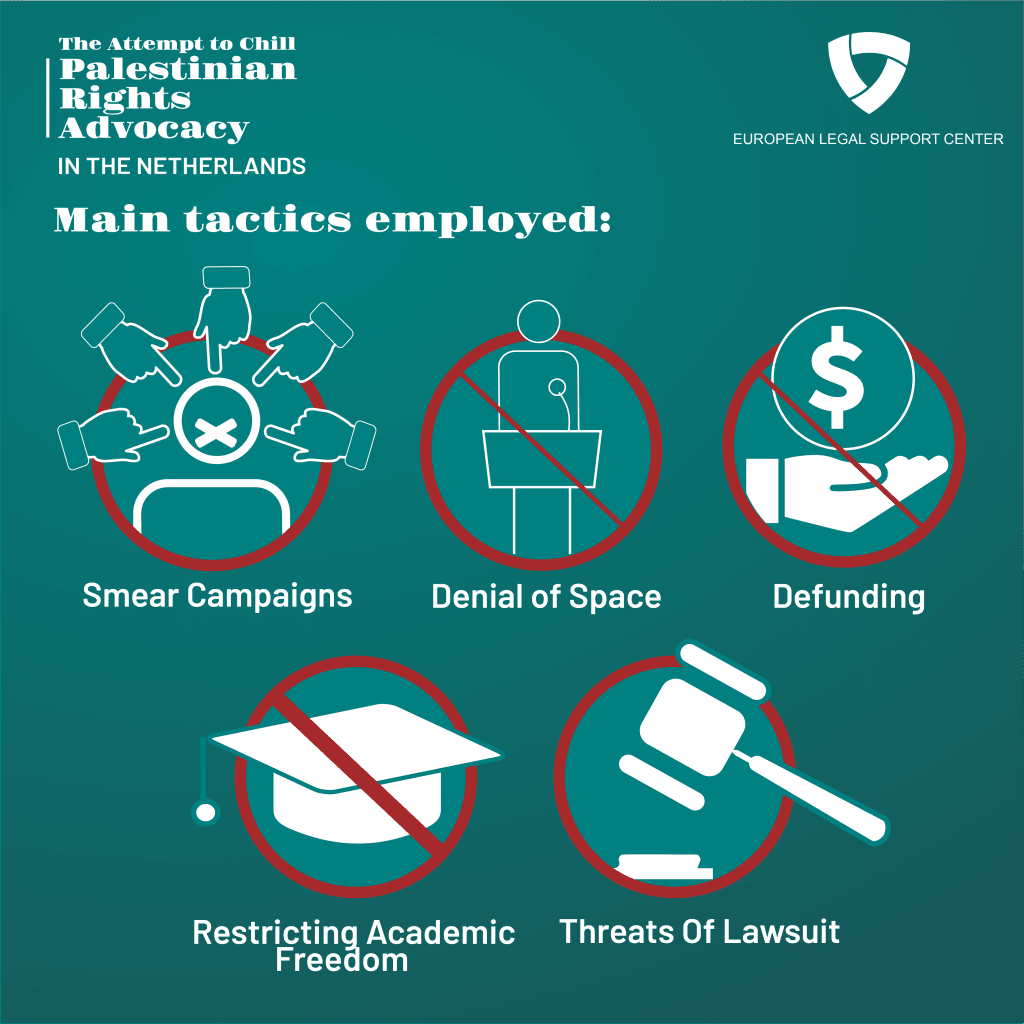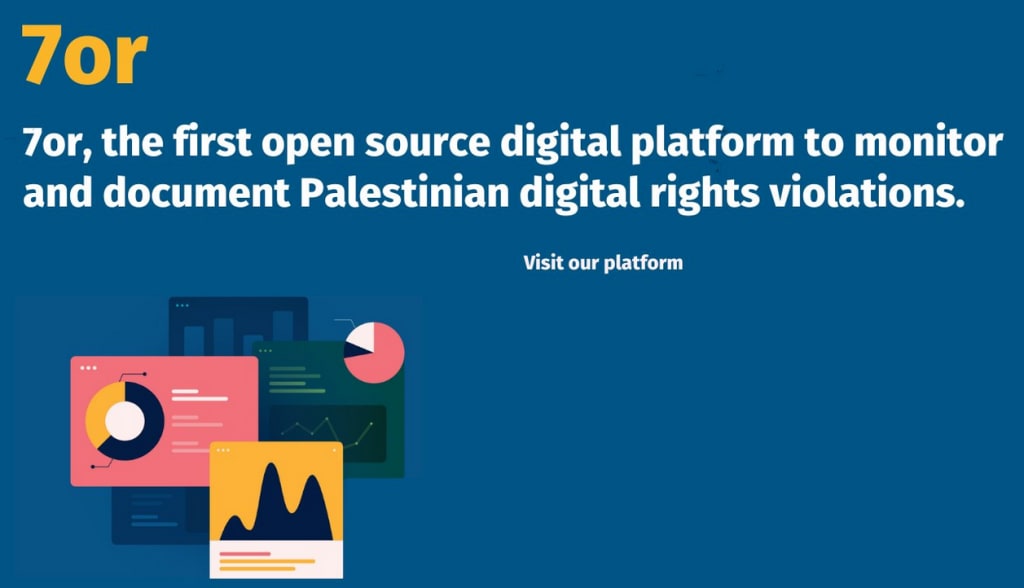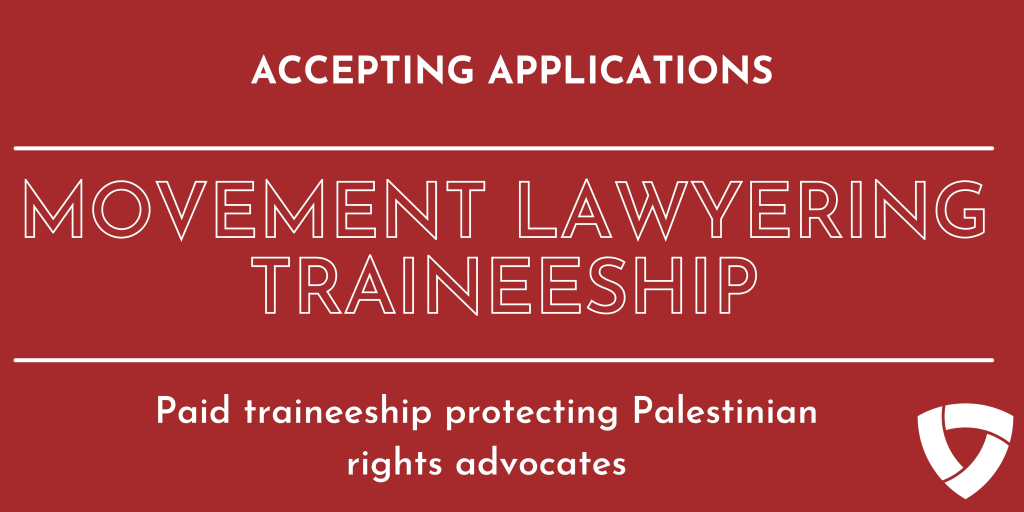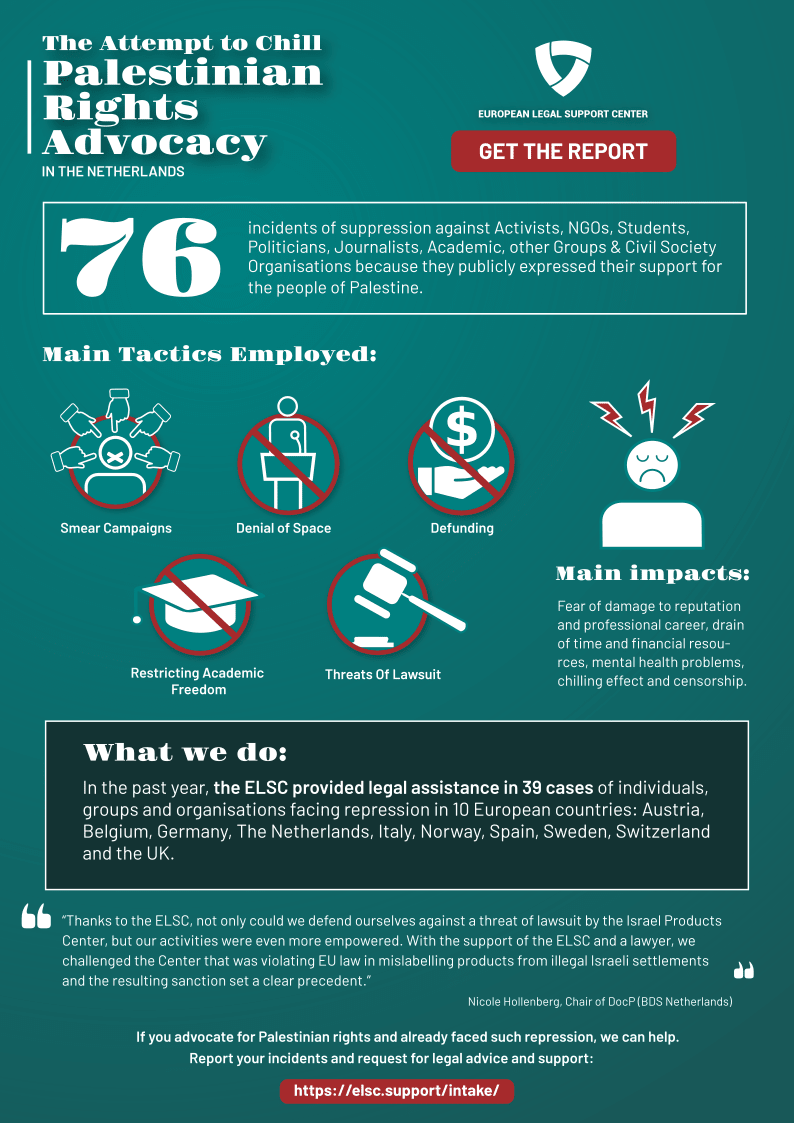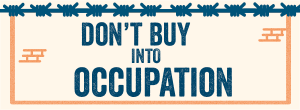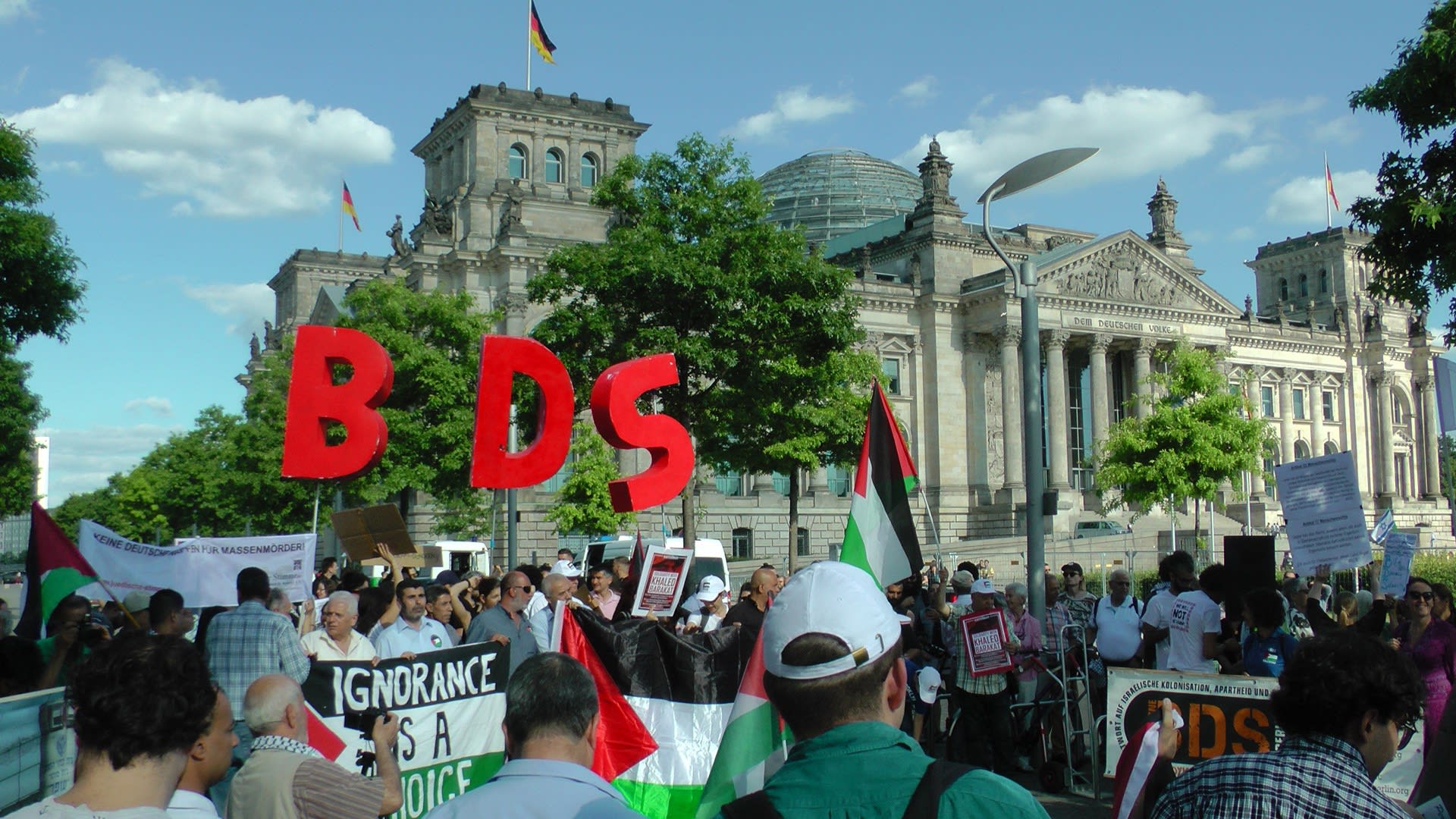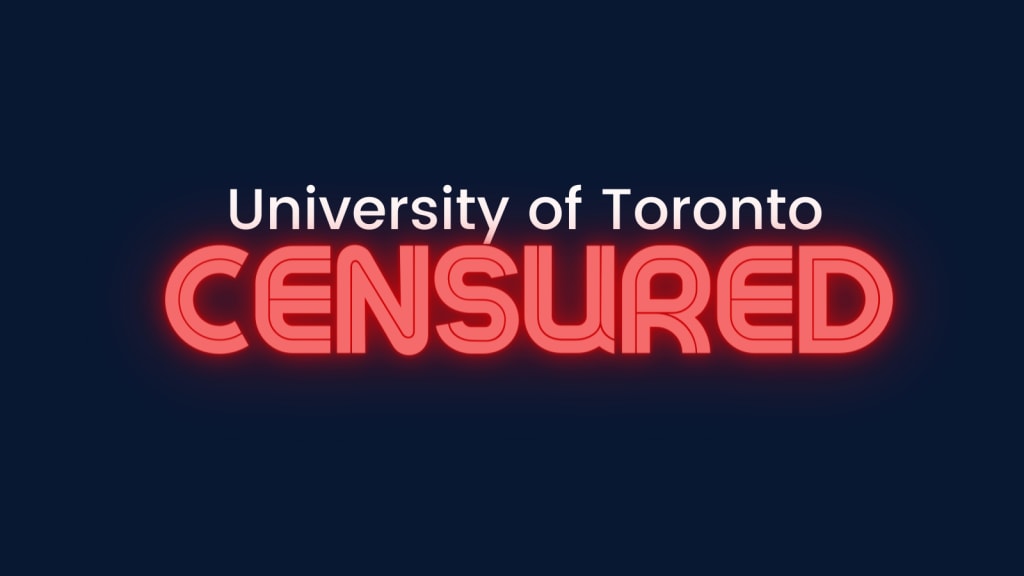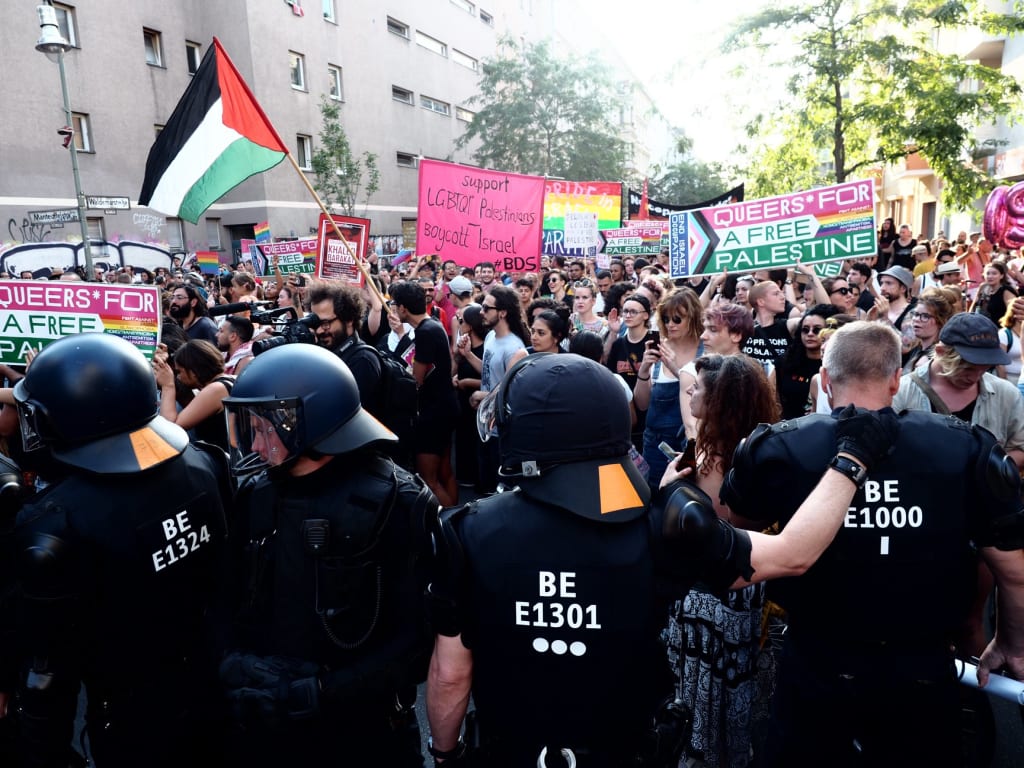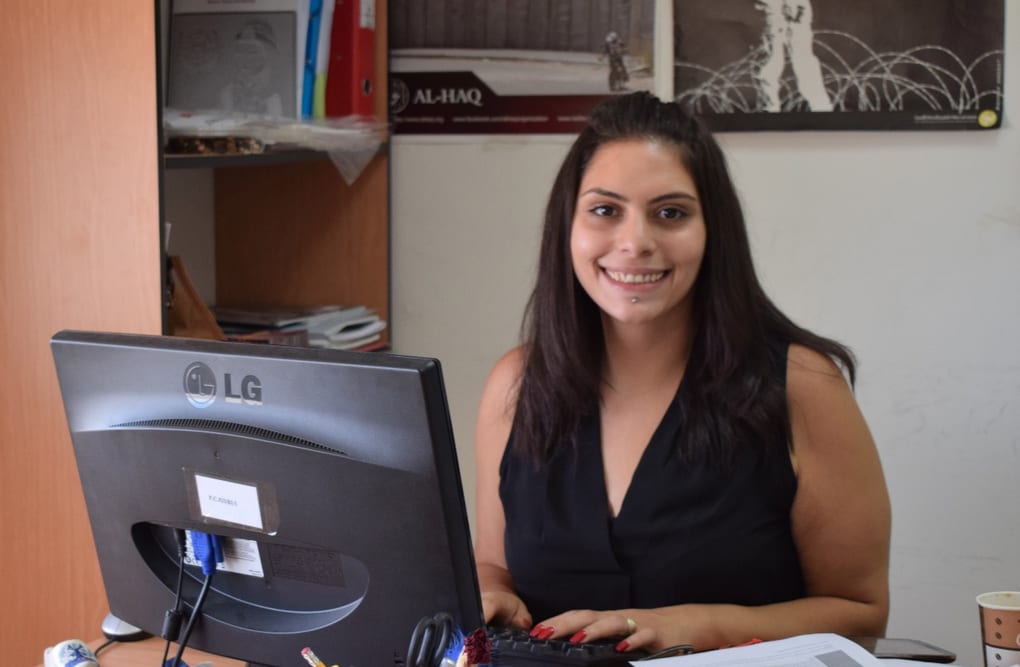GERMAN VERSION BELOW/DEUTSCHE ÜBERSETZUNG UNTEN
Today 12 April 2024, Dr Anna-E. Younes is challenging anti-Palestinian organisations RIAS Berlin and MBR (Mobile Beratungsstelle gegen Rechts) in the Berlin District Court (Landgericht Berlin) with the support of the ELSC.
Dr Anna Younes is a German Palestinian scholar working on the ‘New Antisemitism’ discourse, race critical theories and settler-/colonial theories. Like many others she has already been subjected to several disinformation campaigns, publicly defamed, censored and unfairly excluded from public and academic spaces way before 2019. In 2019, however, Dr Younes discovered that a secret dossier which selectively draws on certain publications of hers and takes them out of context, was written up and distributed by RIAS/MBR in order to get her disinvited from public speaking engagements. Said dossier had been privately passed on to people in die Linke and distorted her work or articles to make defamatory statements about her, including by framing her as an anti-Jewish racist and sexist terrorist sympathizer. Subsequently, Dr Younes was disinvited from a panel discussion on right-wing extremism and anti-Muslim racism organised by the Berlin chapter of Die Linke where she was supposed to present her work on anti-Muslim racism and right-wing networks in Germany.
In violation of European data protection law, Dr Younes was surveilled for her scholarship and activism, causing her loss of employment, reputational damage, as well as an uncanny repetition of surveillance strategies as known from German history. Dr. Younes, the ELSC and her lawyers argue that the creation and circulation of RIAS’ secret dossier – without Dr. Younes’ knowledge or consent – gravely infringed upon her right to privacy, freedom of expression, and academic freedom and amounts to digital surveillance. More importantly, her case does not stand in isolation; it rather unmasks the multiple layers of systematic repression that have been silencing and criminalising Palestinian voices in Germany for a long time. Beyond that, this case is also crucial as it testifies to the importance of halting further infringements on the right to privacy and to free political expression of political minorities, such as anti-war and anti-capitalist movements or climate activists.
Concerned about the consequences of this repressive surveillance for herself and other academics, activists or journalists, Dr Younes reached out to the ELSC and took legal action.
Nearly two years ago, the Berlin District Court upheld Dr Younes’ claims and ordered VDK – the German state-funded organisation that legally represents RIAS Berlin and MBR – to give Dr Anna Younes access to the data that the two organisations had secretly gathered and disseminated. The information released by VDK revealed that RIAS Berlin and MBR had been collecting people’s personal data based on their ‘positions on Israel and BDS’.
Dr Younes and her lawyer now expect the court to order RIAS/MBR to pay damages for the harm suffered by Dr Younes for more than two years. Not only should RIAS/MBR pay damages for having violated Dr Younes’ right to information, as confirmed by the first instance court, but also for the unlawful collection and dissemination of a dossier aiming to damage her reputation.
Dr Younes’ lawyer, Alexander Gorski, said:
This legal battle is about making sure that state-funded organisations such as RIAS Berlin and MBR are held accountable for their repressive practices which have extreme consequences for individuals’ reputation and fundamental rights and freedoms. This must stop.
In March 2024, RIAS (the federal organisation whereof RIAS Berlin forms the local Berlin branch) released their report on ‘Anti-Semitism within BDS’, which enacts yet another targeted attack against the BDS movement and its supporters. Furthermore, RIAS also continues to use unfounded allegations of antisemitism and support of terrorism to further repress Palestine solidarity as well as turning the important category of anti-Jewish racism to mean nothing but “critical of Israeli politics” thereby enabling a dangerous and deeply racist hollowing out of what we mean by anti-Jewish racism. Finally, within that vein, RIAS also confirms its use of the harmful and widely criticized ‘IHRA definition of antisemitism’ to assess incidents of antisemitism.
It is obvious that organisations like RIAS are instrumentalizing the fight against anti-Jewish racism to platform a discourse aimed at repressing and erasing Palestinian voices and anti- or de-colonial narratives, especially at a moment when a wide range of individuals and groups in German civil society are raising their voice against the ongoing genocide and against Germany’s support of Israel’s settler violence. – said Dr Younes.
The decision from the judge is expected within a few weeks.
Antipalästinensische Überwachung in Deutschland: neue Anhörung im Fall von Dr. Anna Younes
Heute, am 12. April 2024, klagt Dr. Anna-E. Younes mit Unterstützung der ELSC gegen die antipalästinensischen Organisationen RIAS Berlin und MBR (Mobile Beratungsstelle gegen Rechts) vor dem Landgericht Berlin.
Dr. Anna Younes ist eine deutsch-palästinensische Wissenschaftlerin, die sich mit dem “Neuen Antisemitismus”-Diskurs, rassenkritischen Theorien und Siedler-/Kolonialtheorien beschäftigt. Wie viele andere war sie bereits vor 2019 mehreren Desinformationskampagnen ausgesetzt, wurde öffentlich diffamiert, zensiert und zu Unrecht aus dem öffentlichen und akademischen Raum ausgeschlossen. Im Jahr 2019 entdeckte Dr. Younes jedoch, dass ein geheimes Dossier, das sich selektiv auf bestimmte Veröffentlichungen von ihr stützt und diese aus dem Zusammenhang reißt, vom RIAS/MBR erstellt und verbreitet wurde, um sie von öffentlichen Auftritten auszuladen. Dieses Dossier wurde privat an Personen in der Partei Die Linke weitergegeben und verfälschte ihre Arbeit oder Artikel, um diffamierende Aussagen über sie zu machen, unter anderem indem sie als antijüdische, rassistische und sexistische Terroristensympathisantin dargestellt wurde. In der Folge wurde Dr. Younes von einer Podiumsdiskussion über Rechtsextremismus und antimuslimischen Rassismus ausgeladen, die von der Berliner Sektion der Partei Die Linke organisiert wurde und auf der sie ihre Arbeit über antimuslimischen Rassismus und rechte Netzwerke in Deutschland vorstellen sollte.
Unter Verstoß gegen das europäische Datenschutzrecht wurde Dr. Younes wegen ihrer wissenschaftlichen Arbeit und ihres Engagements überwacht, was zum Verlust ihres Arbeitsplatzes und zur Schädigung ihres Rufes führte und eine unheimliche Wiederholung der aus der deutschen Geschichte bekannten Überwachungsstrategien darstellt. Der Fall, den Dr. Younes, die ELSC und ihre Anwälte aufgebaut haben, argumentiert, dass die Erstellung und Verbreitung des geheimen Dossiers des RIAS – ohne Dr. Younes’ Wissen oder Zustimmung – ihr Recht auf Privatsphäre, freie Meinungsäußerung und akademische Freiheit schwerwiegend verletzt hat und einer digitalen Überwachung gleichkommt. Noch wichtiger ist, dass ihr Fall nicht isoliert dasteht, sondern vielmehr die vielen Ebenen der systematischen Unterdrückung aufdeckt, die palästinensische Stimmen in Deutschland seit langem zum Schweigen bringen und kriminalisieren. Darüber hinaus ist dieser Fall auch deshalb so entscheidend, weil er zeigt, wie wichtig es ist, weitere Verstöße gegen das Recht auf Privatsphäre und freie politische Meinungsäußerung von politischen Minderheiten wie Antikriegs- und antikapitalistischen Bewegungen oder Klimaaktivisten zu unterbinden.
Besorgt über die Folgen dieser repressiven Überwachung für sie selbst und andere Akademiker, Aktivisten oder Journalisten wandte sich Dr. Younes an die ELSC und erhob rechtliche Schritte.
Vor fast zwei Jahren gab das Landgericht Berlin den Klagen von Dr. Younes statt und ordnete an, dass der VdK – die deutsche staatlich finanzierte Organisation, die RIAS Berlin und MBR rechtlich vertritt – Dr. Anna Younes Zugang zu den Daten gewährt, die die beiden Organisationen heimlich gesammelt und verbreitet hatten. Die von der VdK herausgegebenen Informationen enthüllten, dass RIAS Berlin und MBR personenbezogene Daten von Personen auf der Grundlage ihrer “Positionen zu Israel und BDS” gesammelt hatten.
Dr. Younes und ihr Anwalt erwarten nun, dass das Gericht den RIAS/MBR zur Zahlung von Schadenersatz für den Schaden verurteilt, den Dr. Younes mehr als zwei Jahre lang erlitten hat. Der RIAS/MBR sollte nicht nur Schadensersatz dafür zahlen, dass das Recht von Dr. Younes auf Information verletzt wurde, wie das erstinstanzliche Gericht bestätigt hat, sondern auch für die unrechtmäßige Sammlung und Verbreitung eines Dossiers, das darauf abzielt, ihren Ruf zu schädigen.
Dr. Younes’ Anwalt, Alexander Gorski, sagte:
In diesem Rechtsstreit geht es darum, sicherzustellen, dass staatlich finanzierte Organisationen wie RIAS Berlin und MBR für ihre repressiven Praktiken zur Rechenschaft gezogen werden, die extreme Auswirkungen auf den Ruf und die Grundrechte und -freiheiten des Einzelnen haben. Das muss aufhören.
Im März 2024 veröffentlichte RIAS (die Bundesorganisation, deren Ortsgruppe in Berlin RIAS Berlin ist) ihren Bericht über “Antisemitismus in BDS”, der einen weiteren gezielten Angriff auf die BDS-Bewegung und ihre UnterstützerInnen darstellt. Darüber hinaus nutzt RIAS weiterhin unbegründete Vorwürfe des Antisemitismus und der Unterstützung des Terrorismus, um die Solidarität mit Palästina weiter zu unterdrücken und die wichtige Kategorie des antijüdischen Rassismus auf nichts anderes als “kritisch gegenüber israelischer Politik” zu reduzieren, wodurch eine gefährliche und zutiefst rassistische Auslöschung dessen ermöglicht wird, was wir unter antijüdischem Rassismus verstehen. Schließlich bestätigt RIAS in diesem Zusammenhang auch die Verwendung der schädlichen und weithin kritisierten “IHRA-Definition von Antisemitismus”, um Vorfälle von Antisemitismus zu bewerten.
Es ist offensichtlich, dass Organisationen wie RIAS den Kampf gegen antijüdischen Rassismus instrumentalisieren, um einem Diskurs eine Plattform zu bieten, der darauf abzielt, palästinensische Stimmen und anti- oder de-koloniale Narrative zu unterdrücken und auszulöschen, insbesondere zu einem Zeitpunkt, an dem ein breites Spektrum von Einzelpersonen und Gruppen in der deutschen Zivilgesellschaft ihre Stimme gegen den anhaltenden Völkermord und gegen Deutschlands Unterstützung der israelischen Siedlergewalt erhebt
– so Dr. Younes.
Die Entscheidung des Richters wird in den nächsten Wochen erwartet.


















